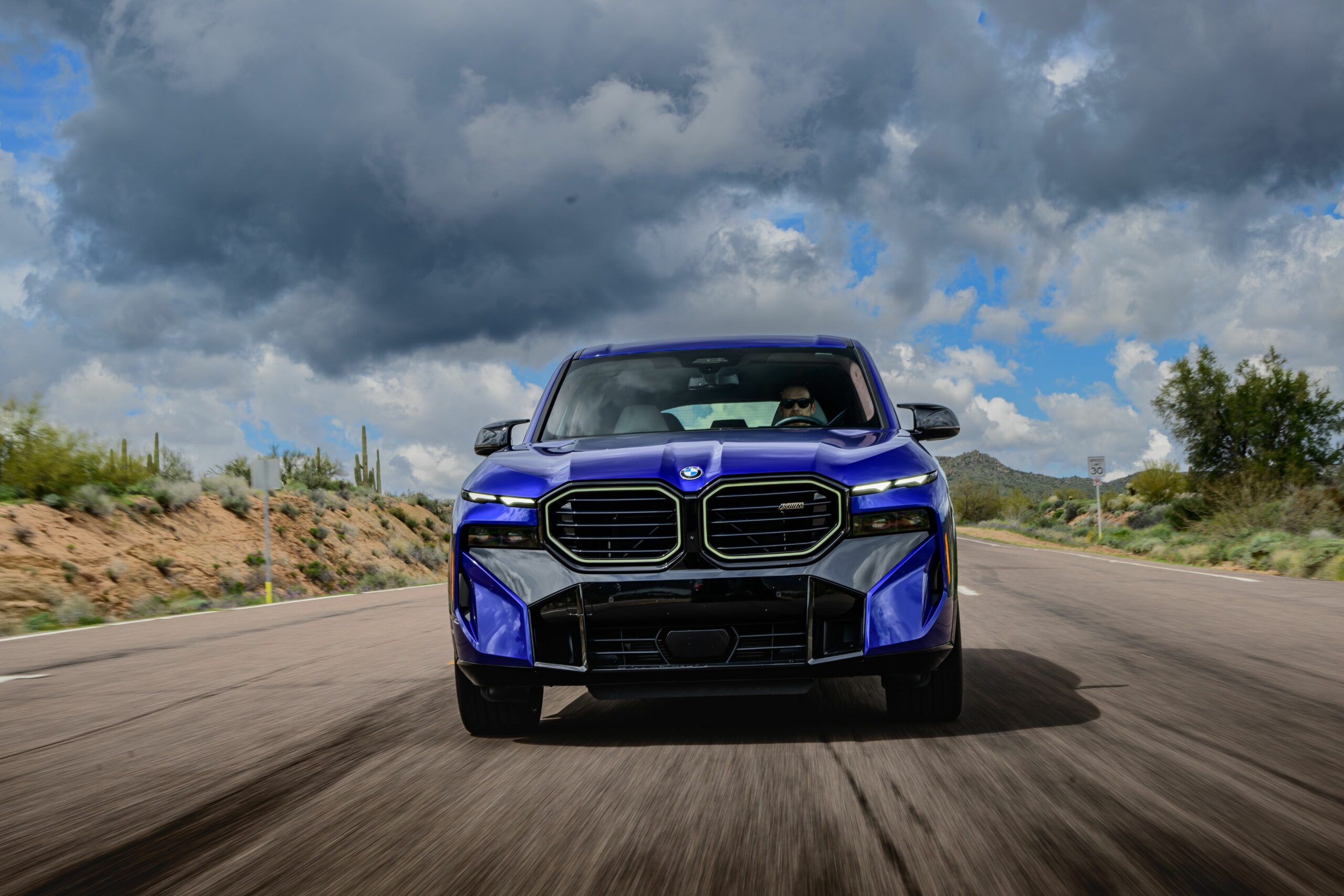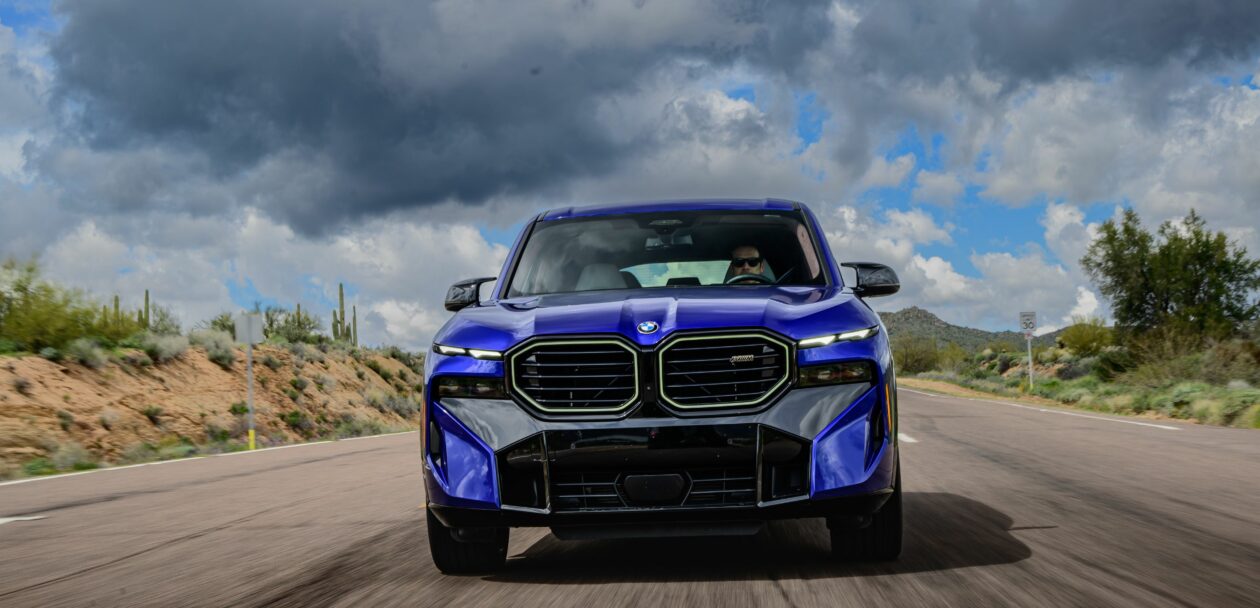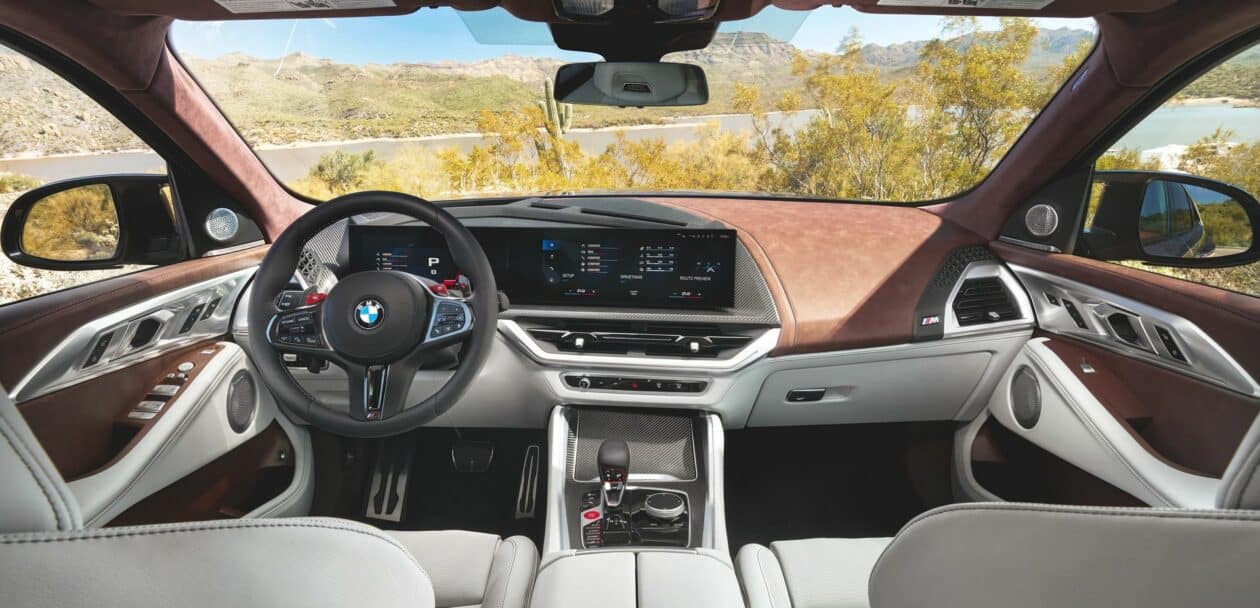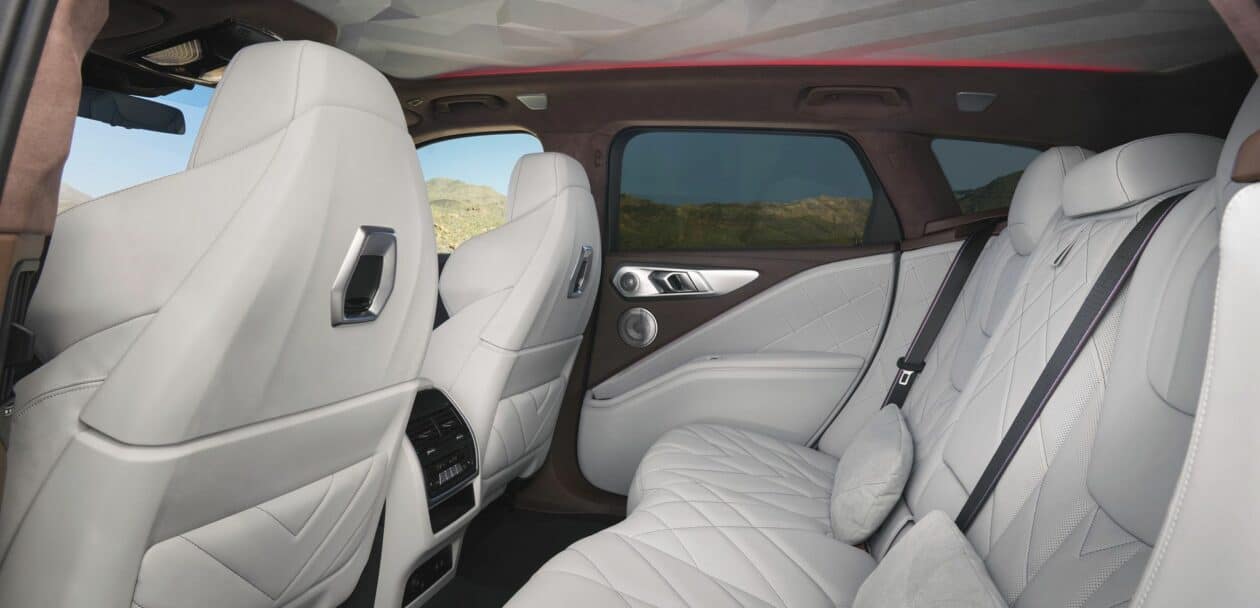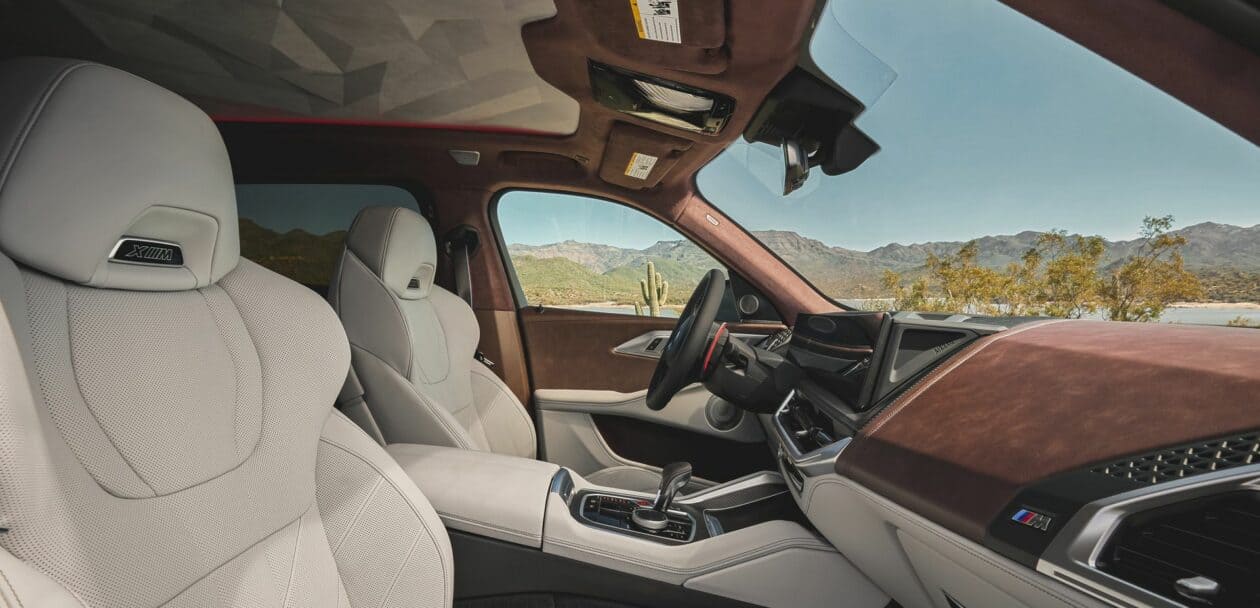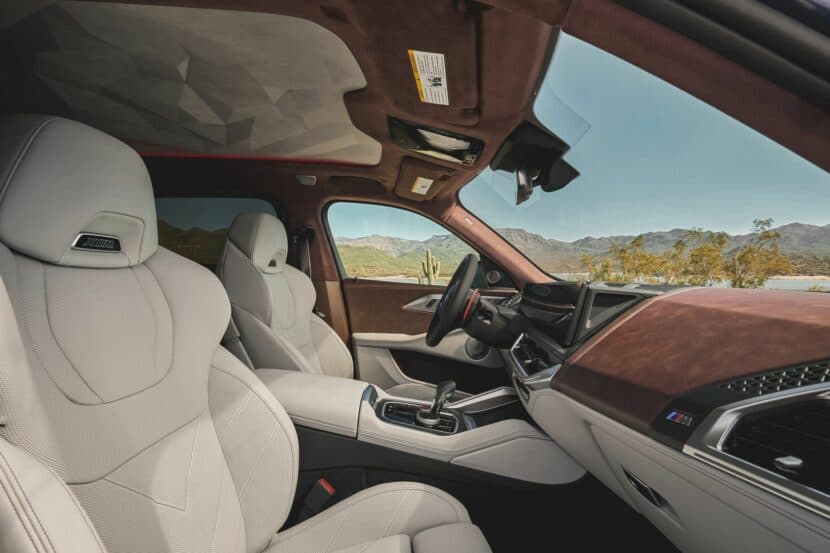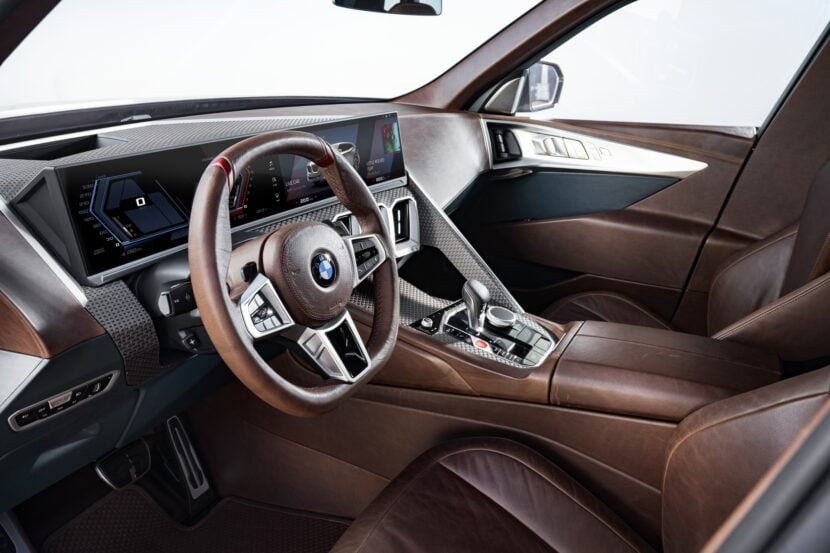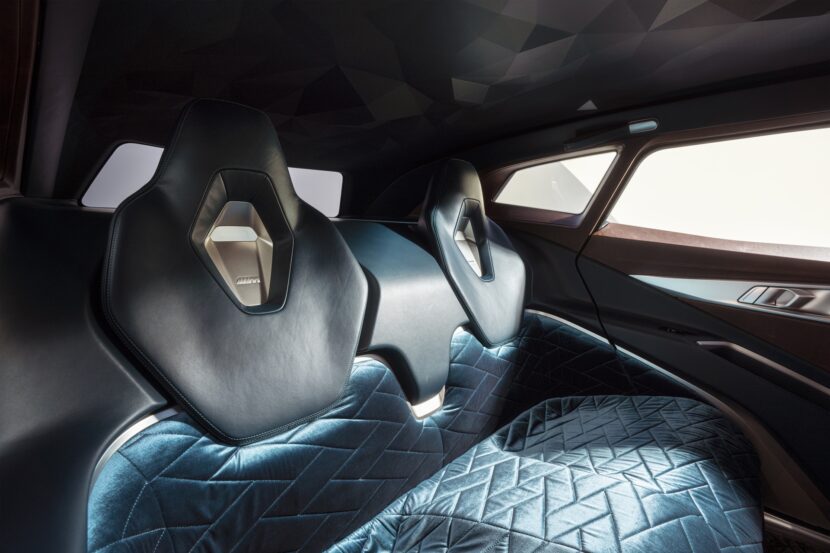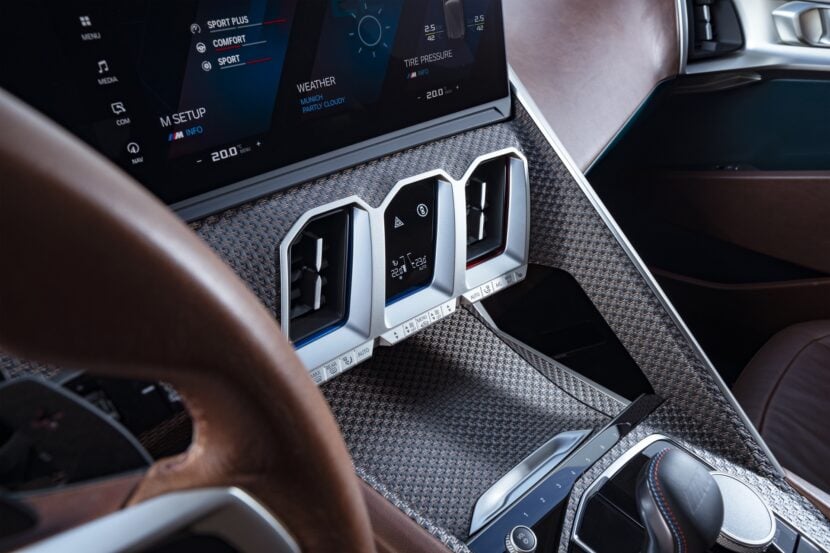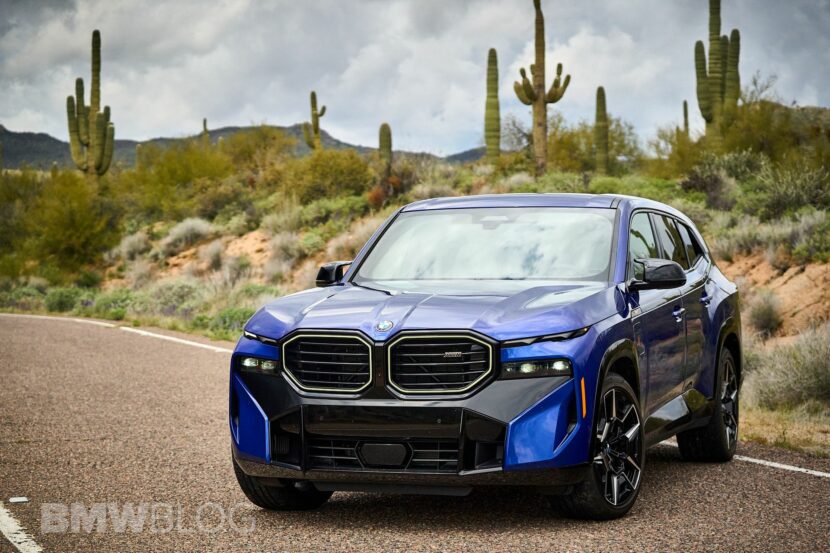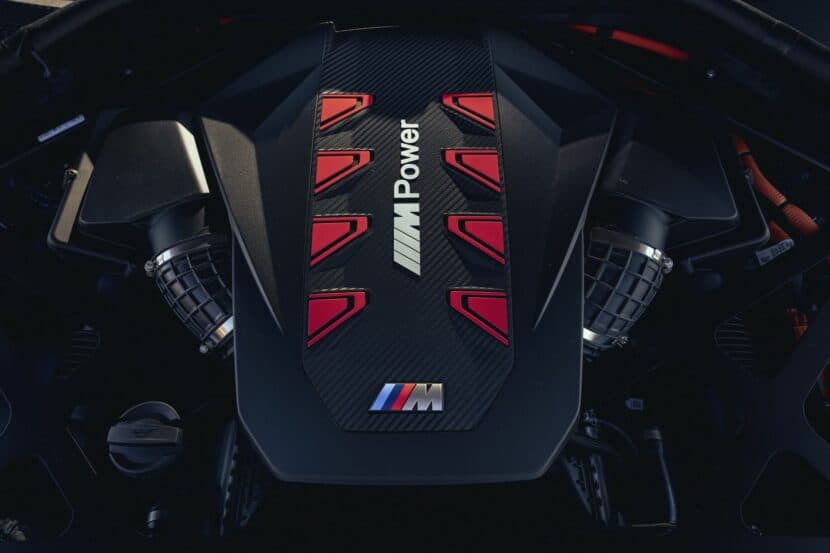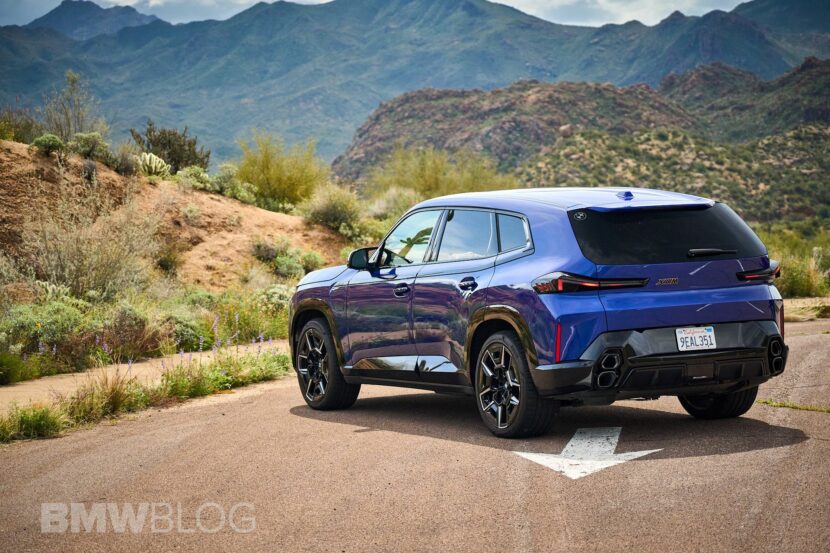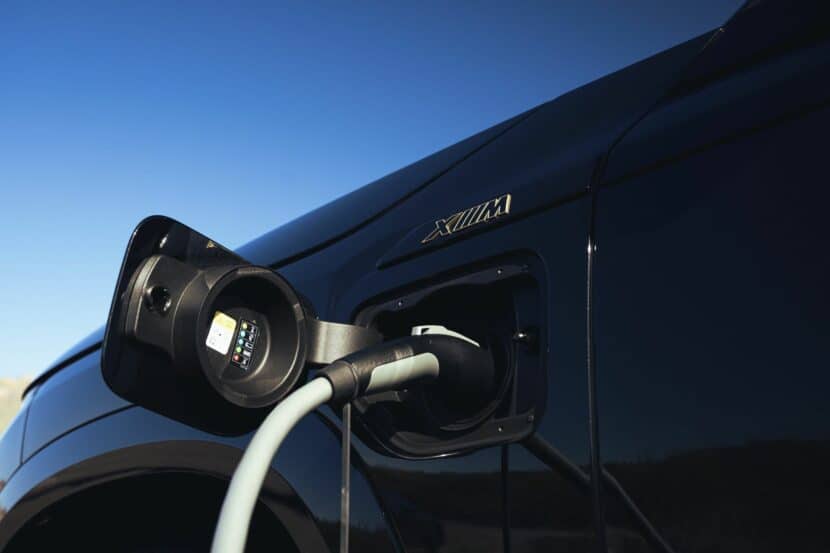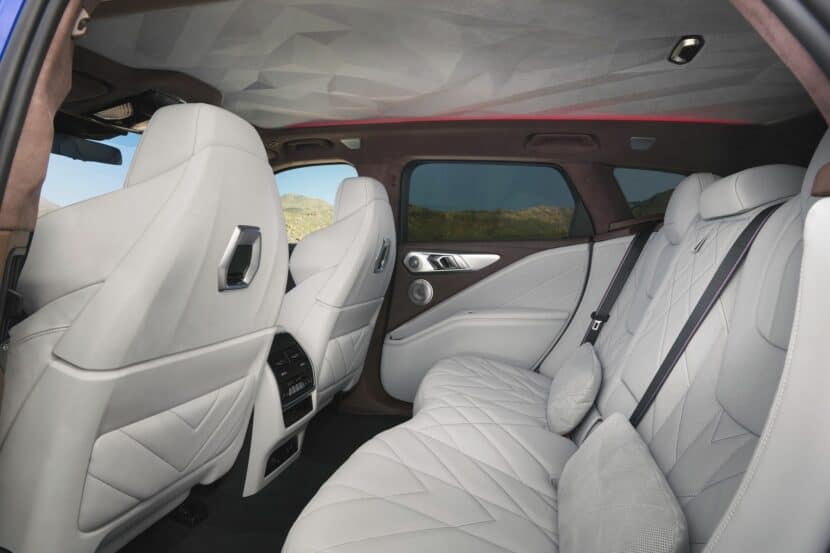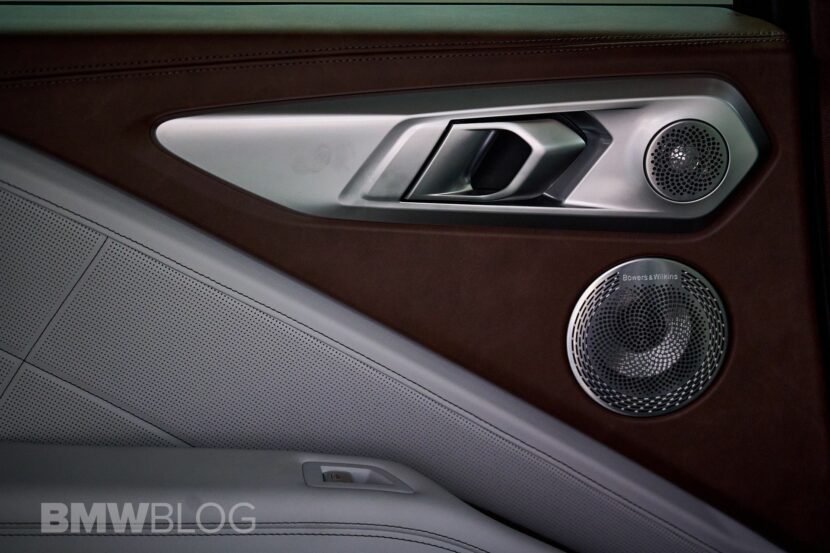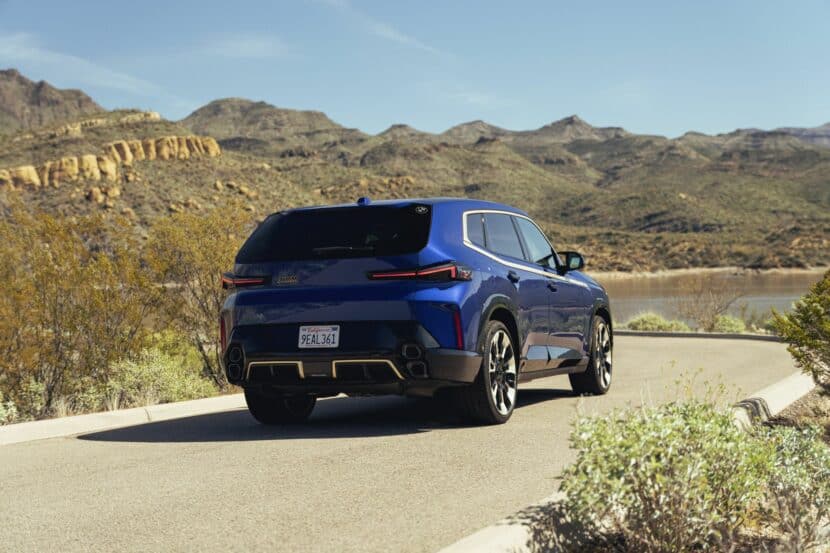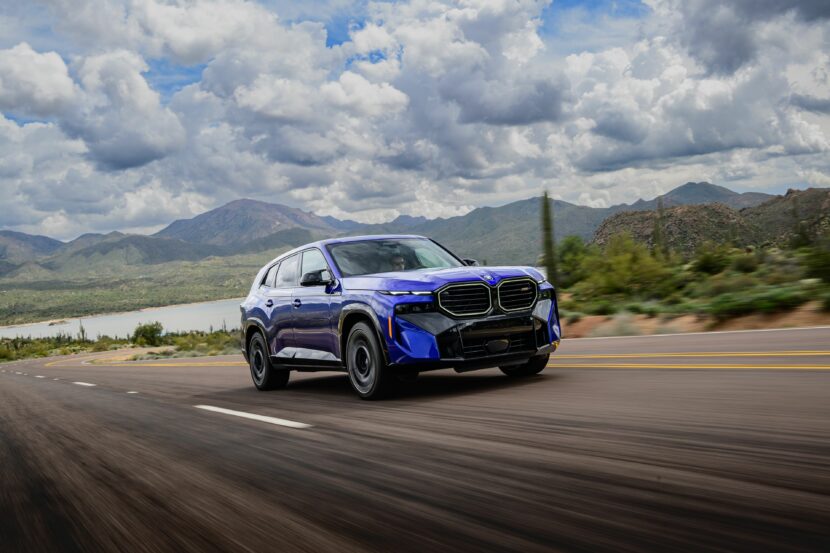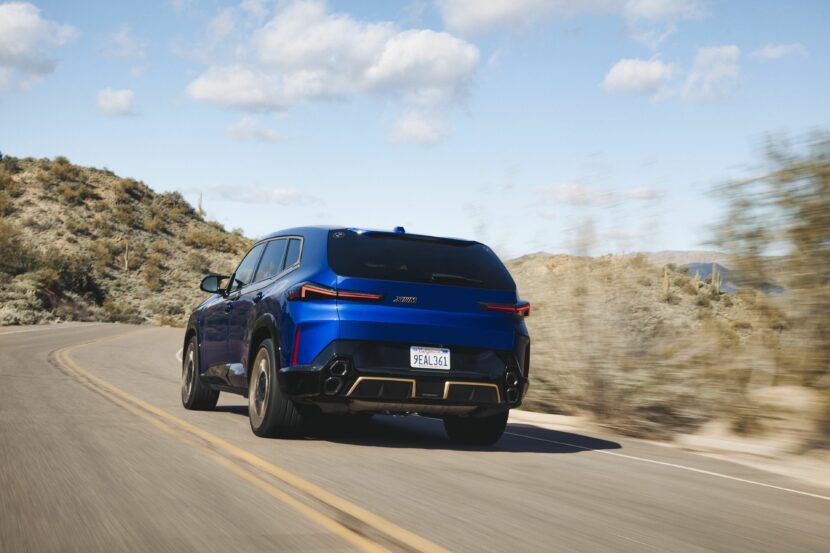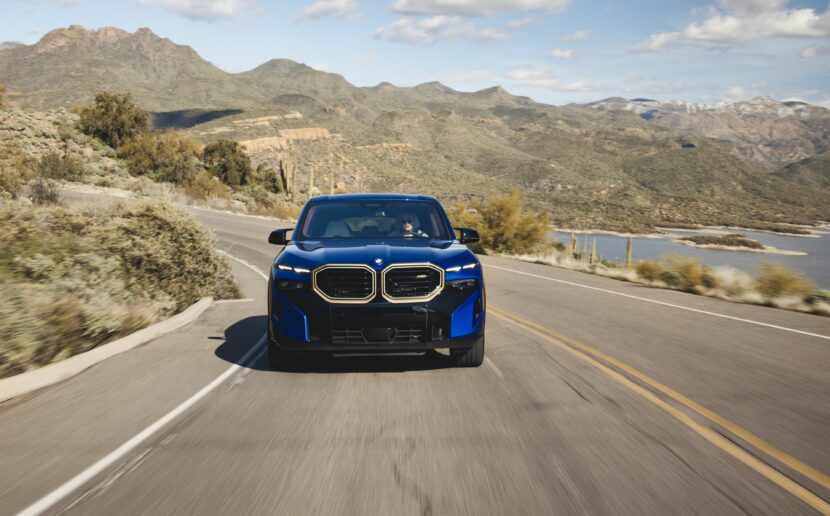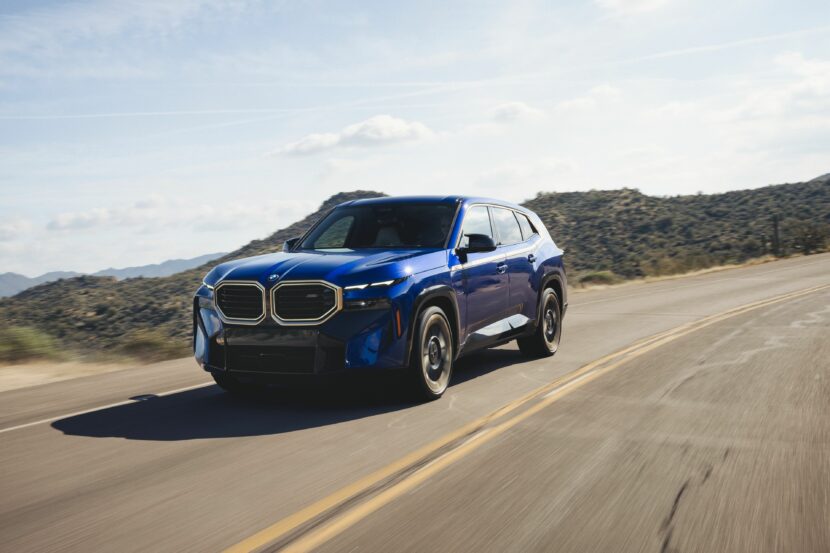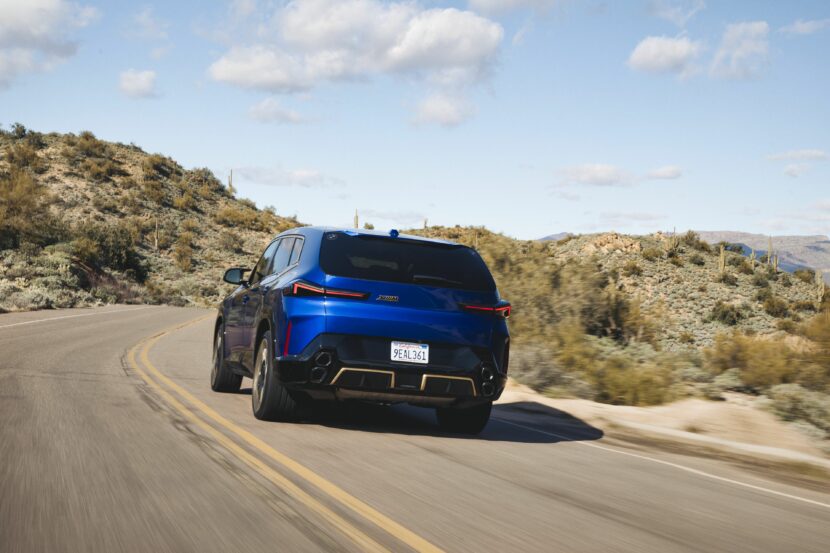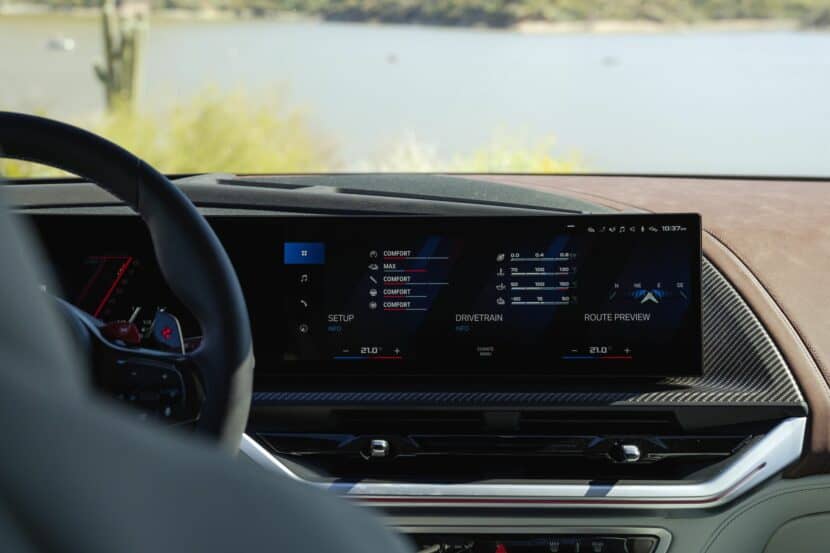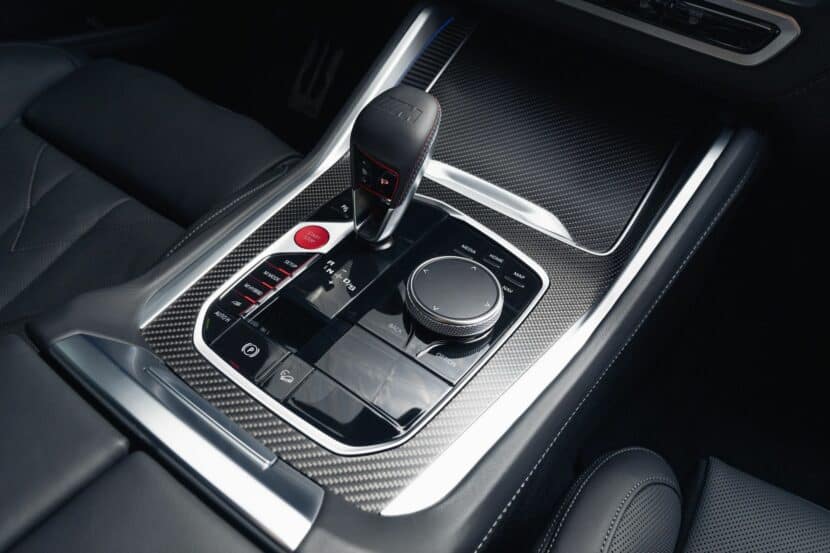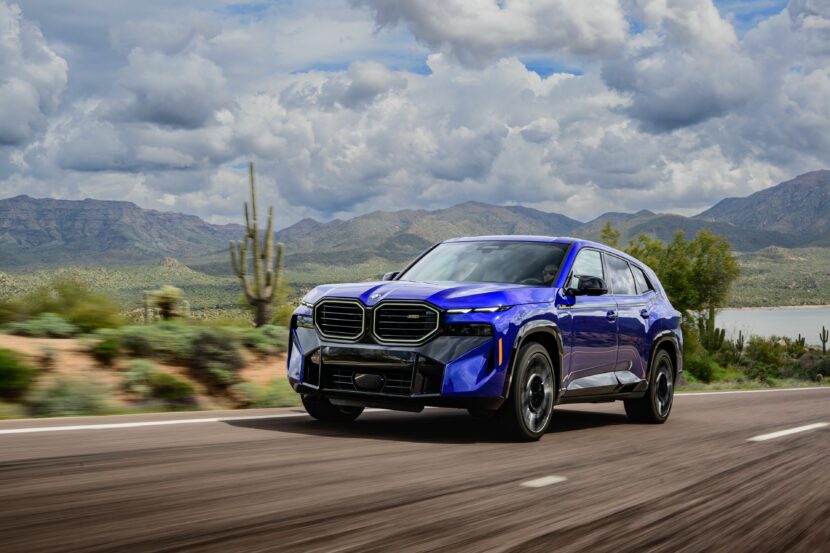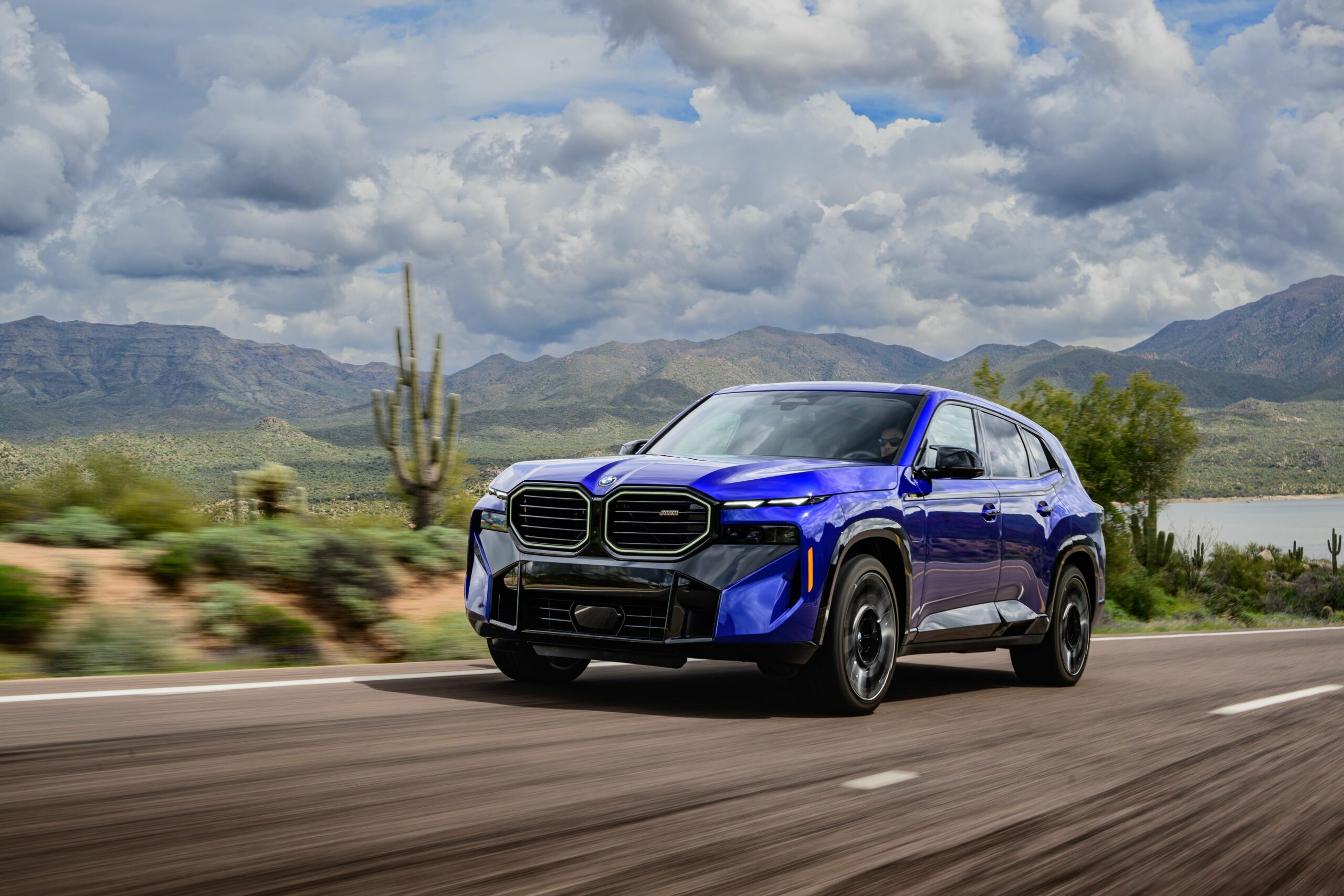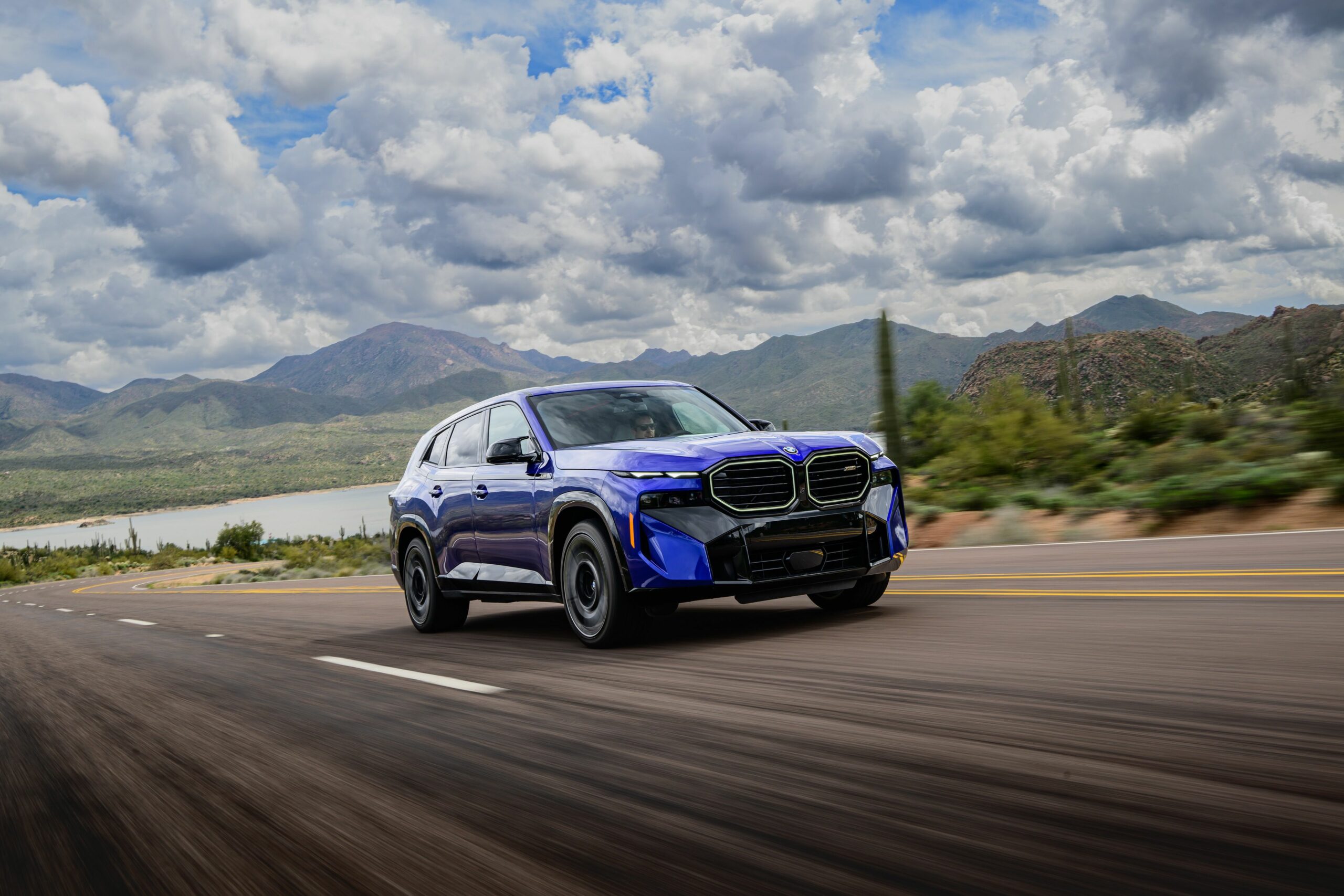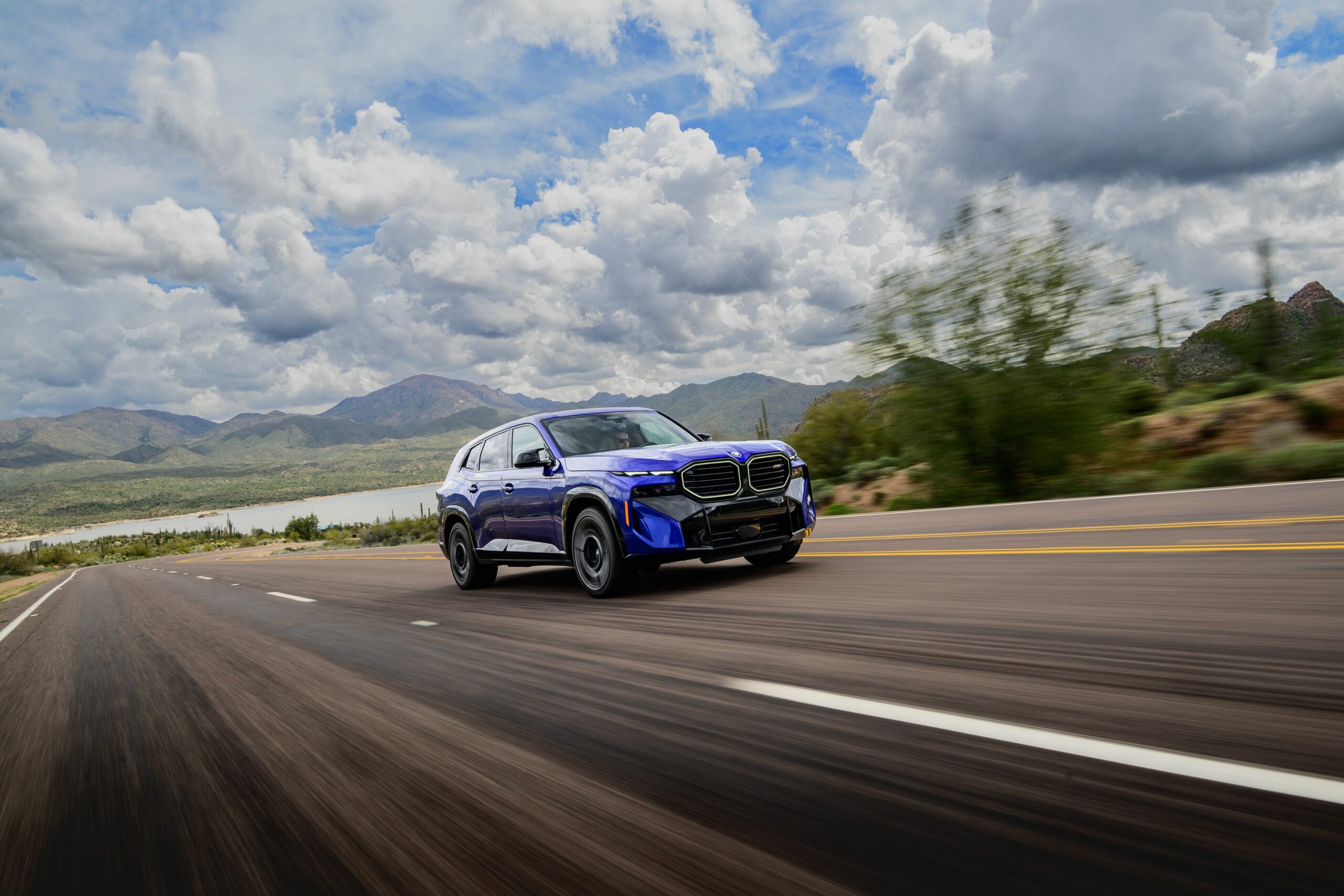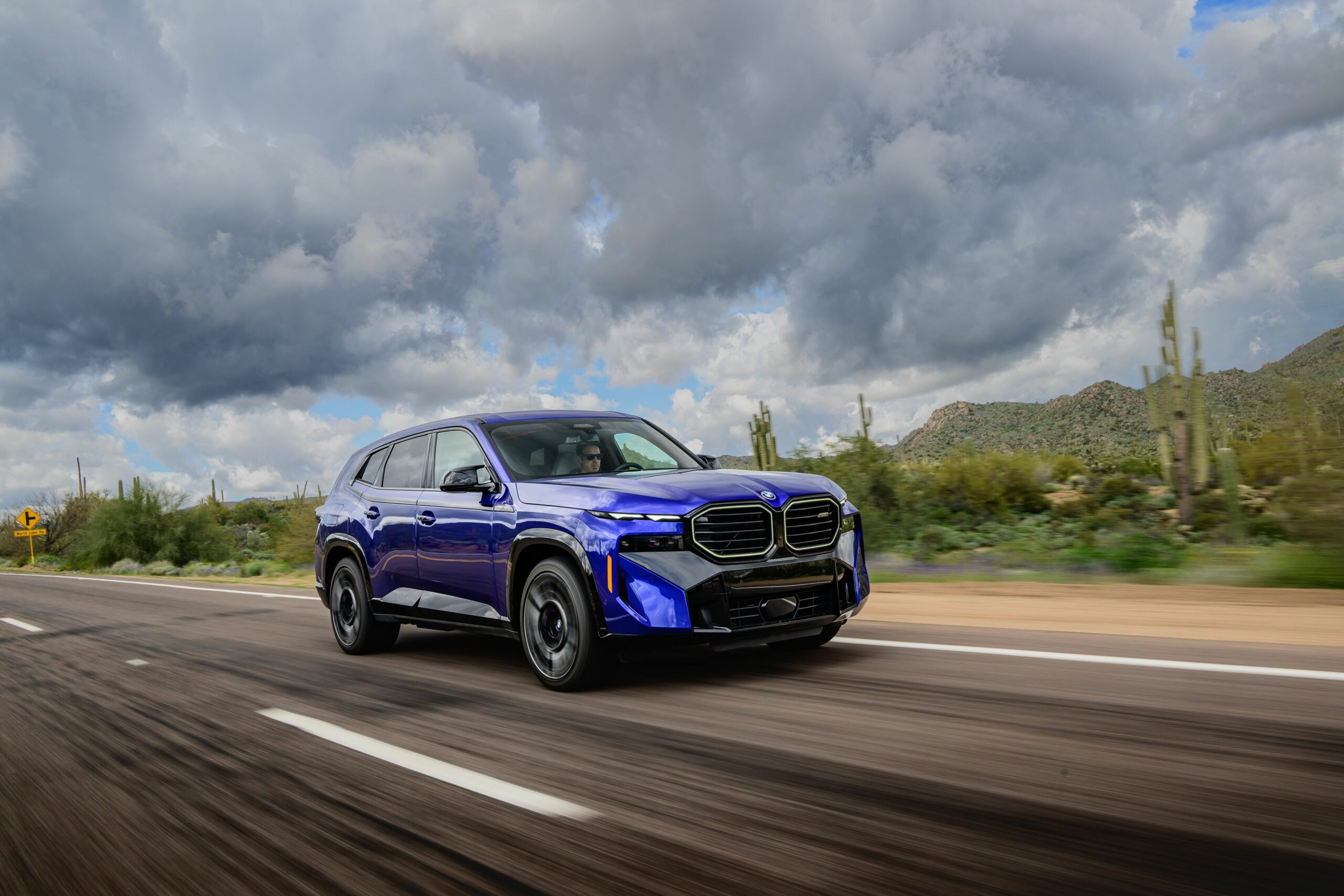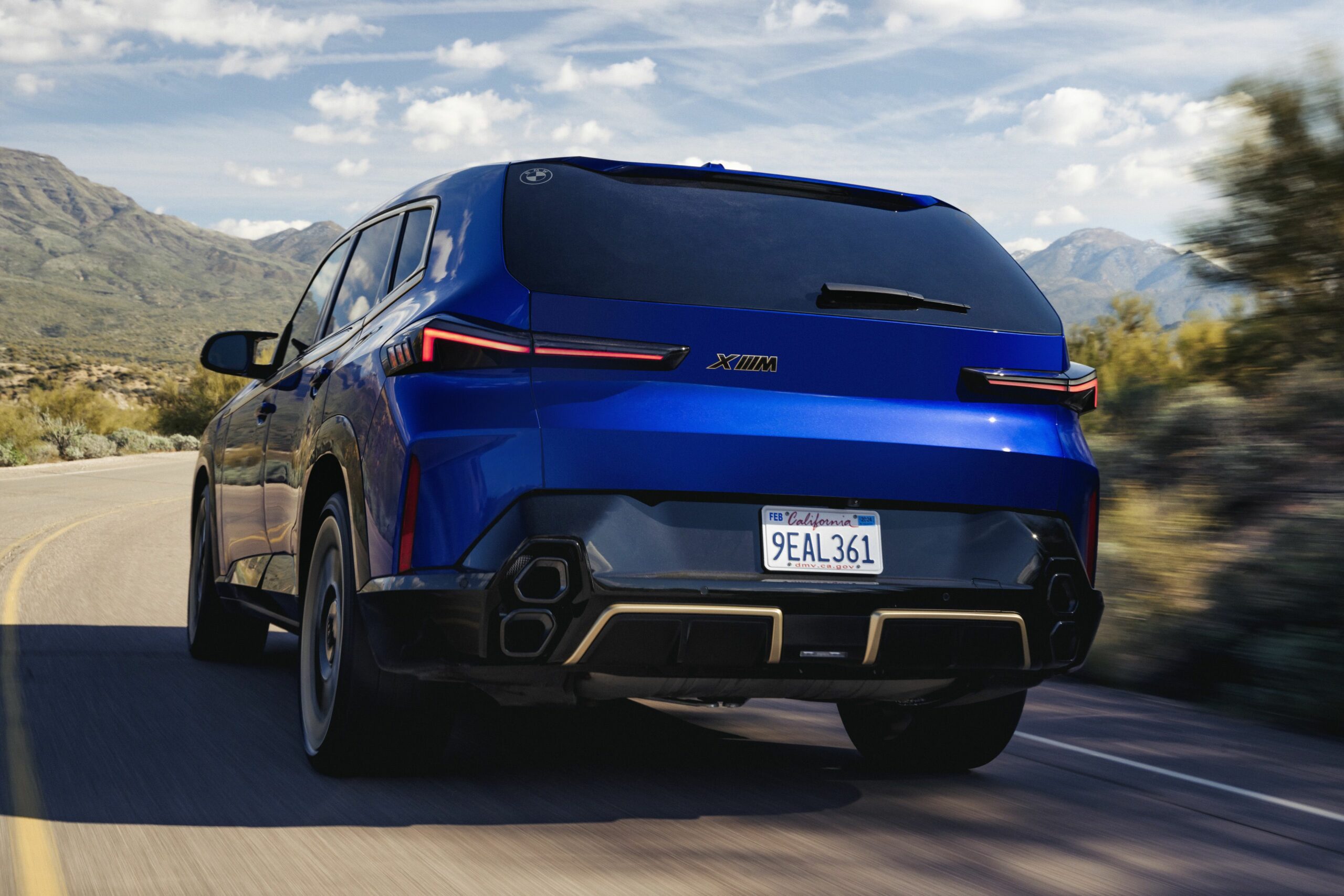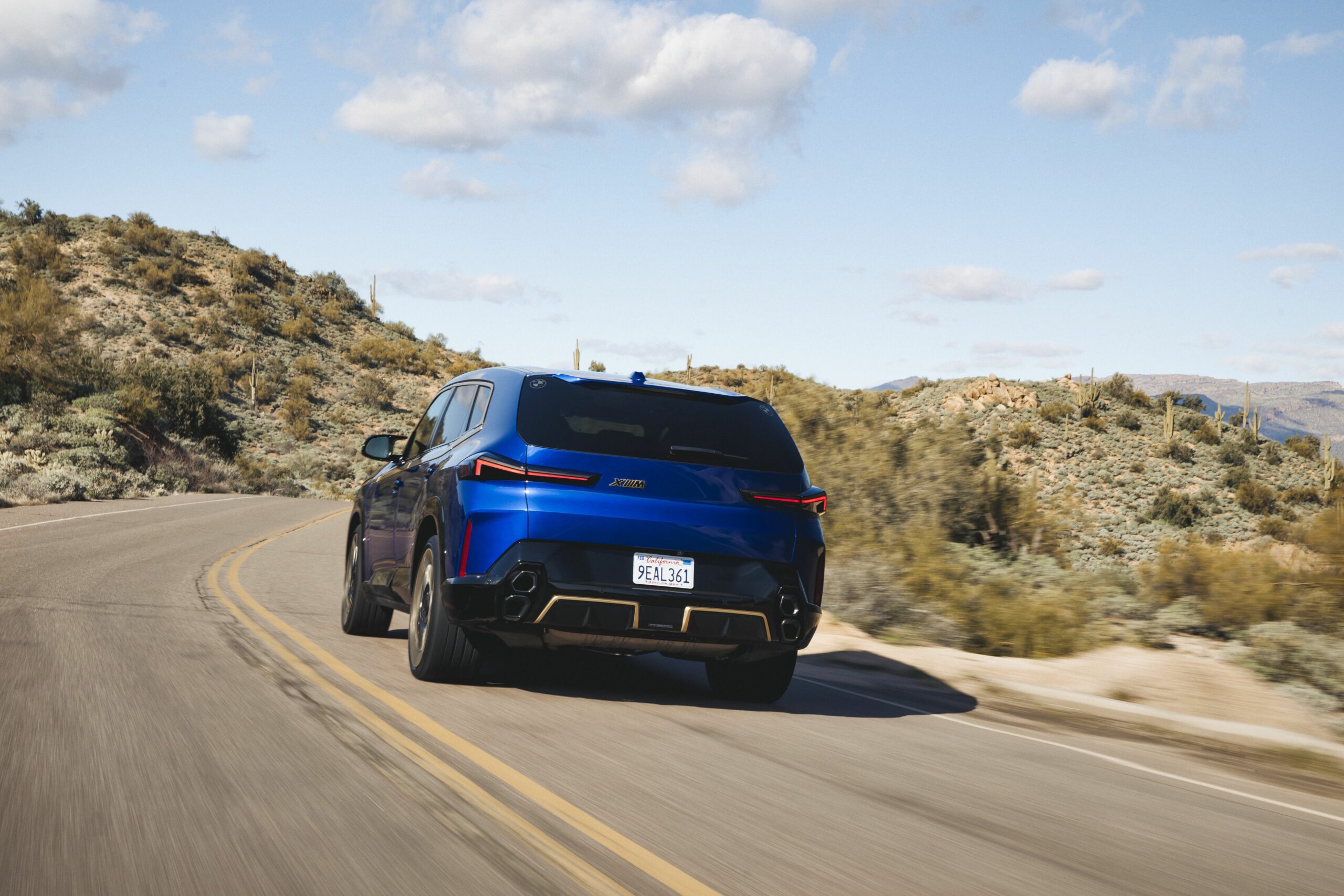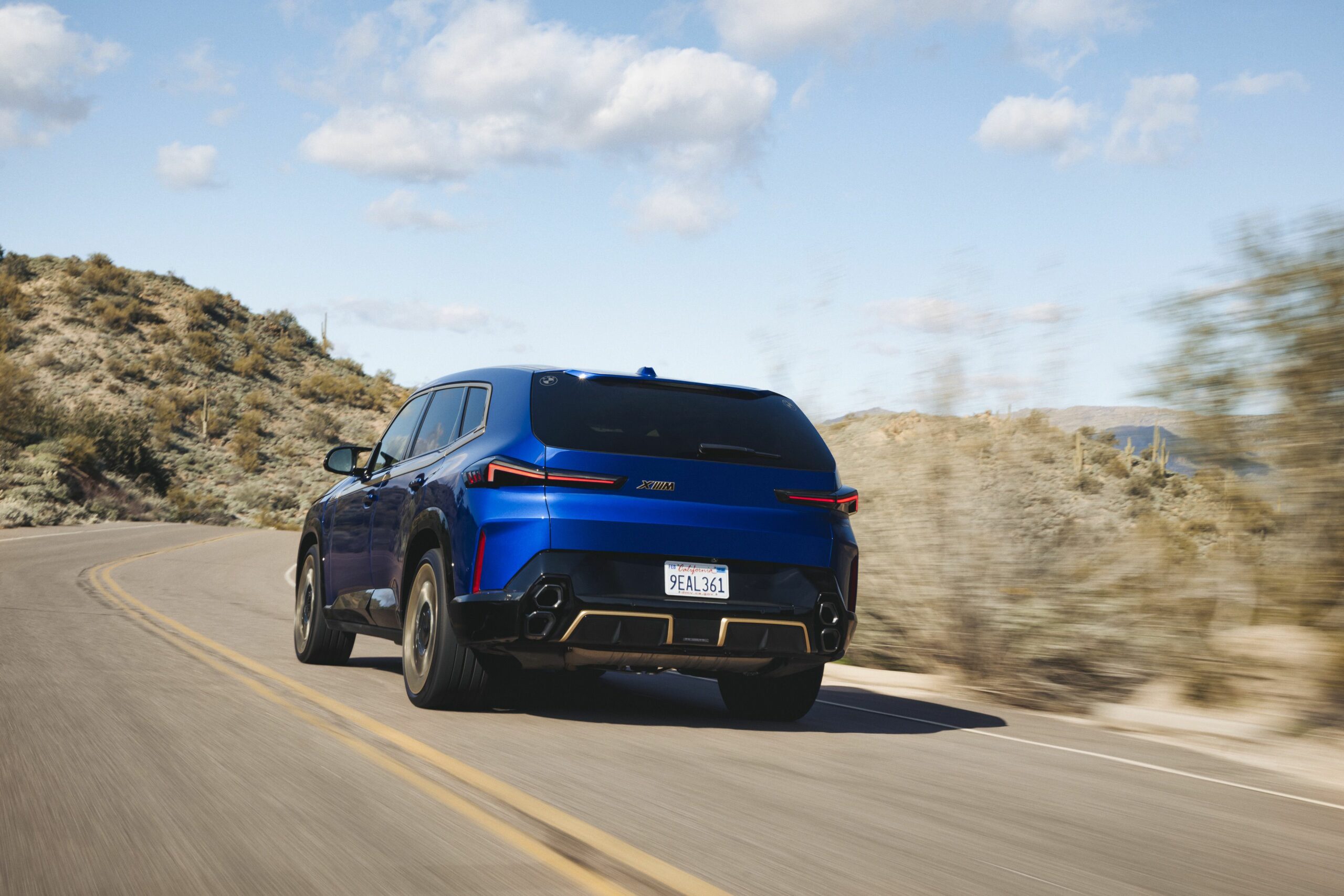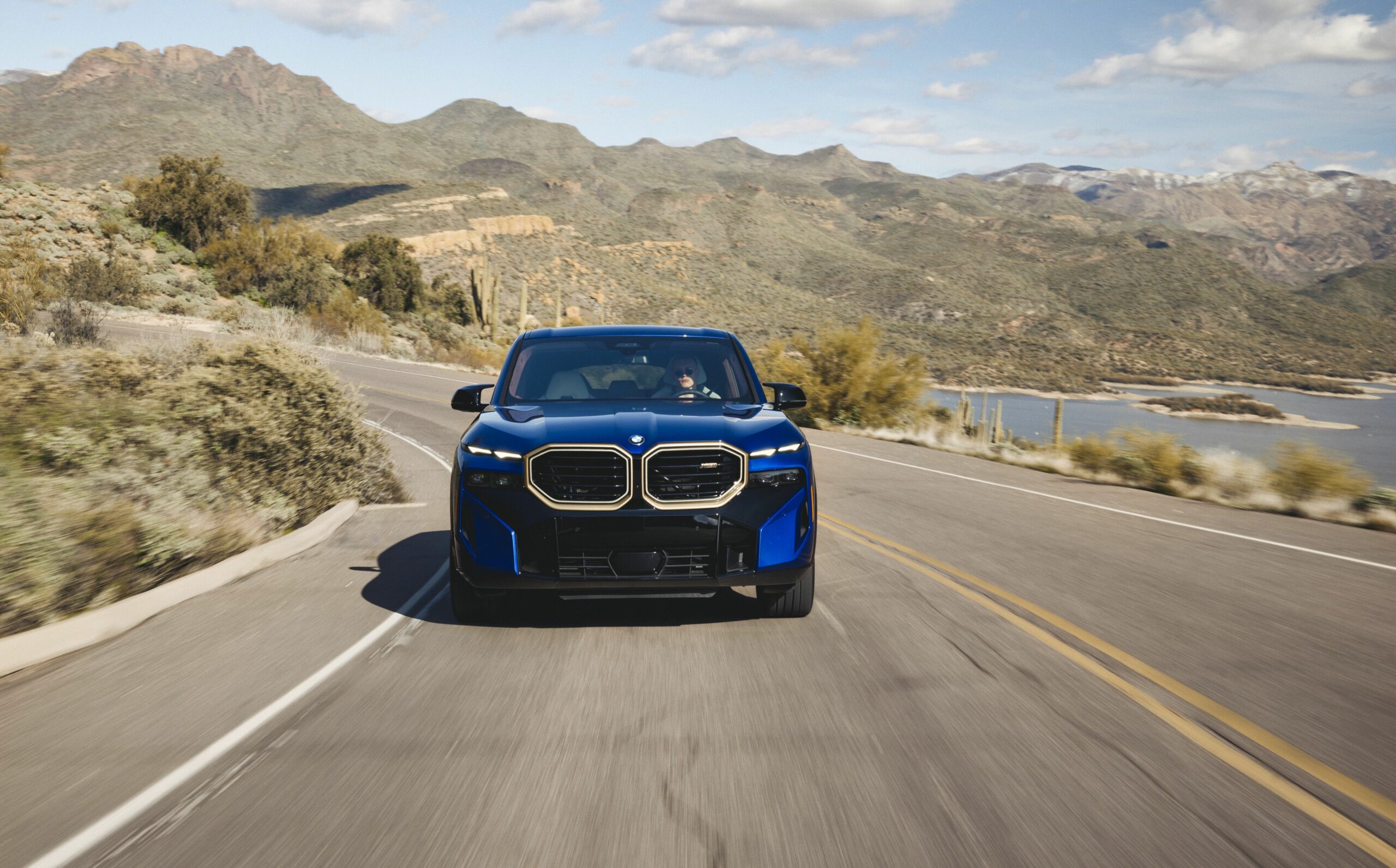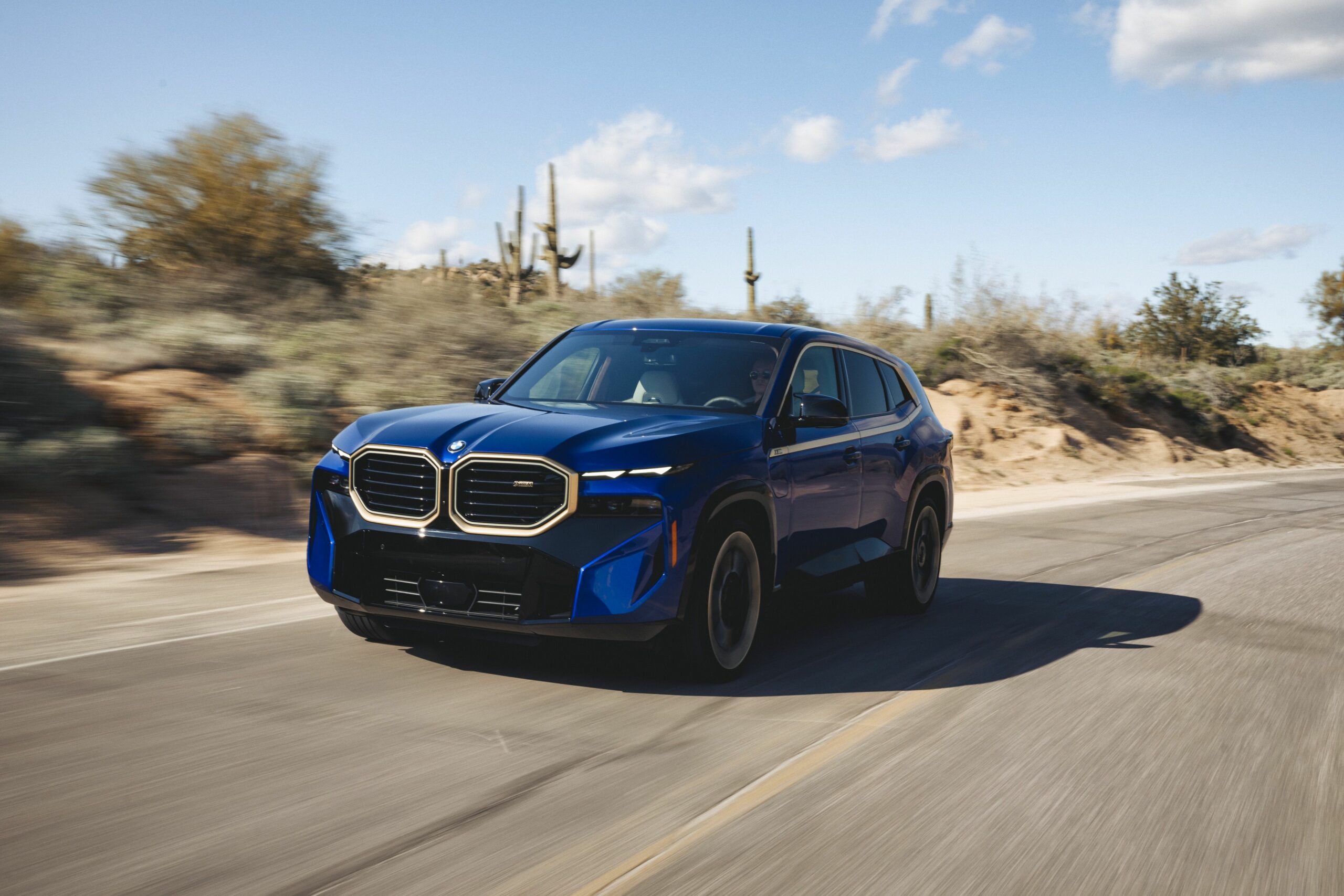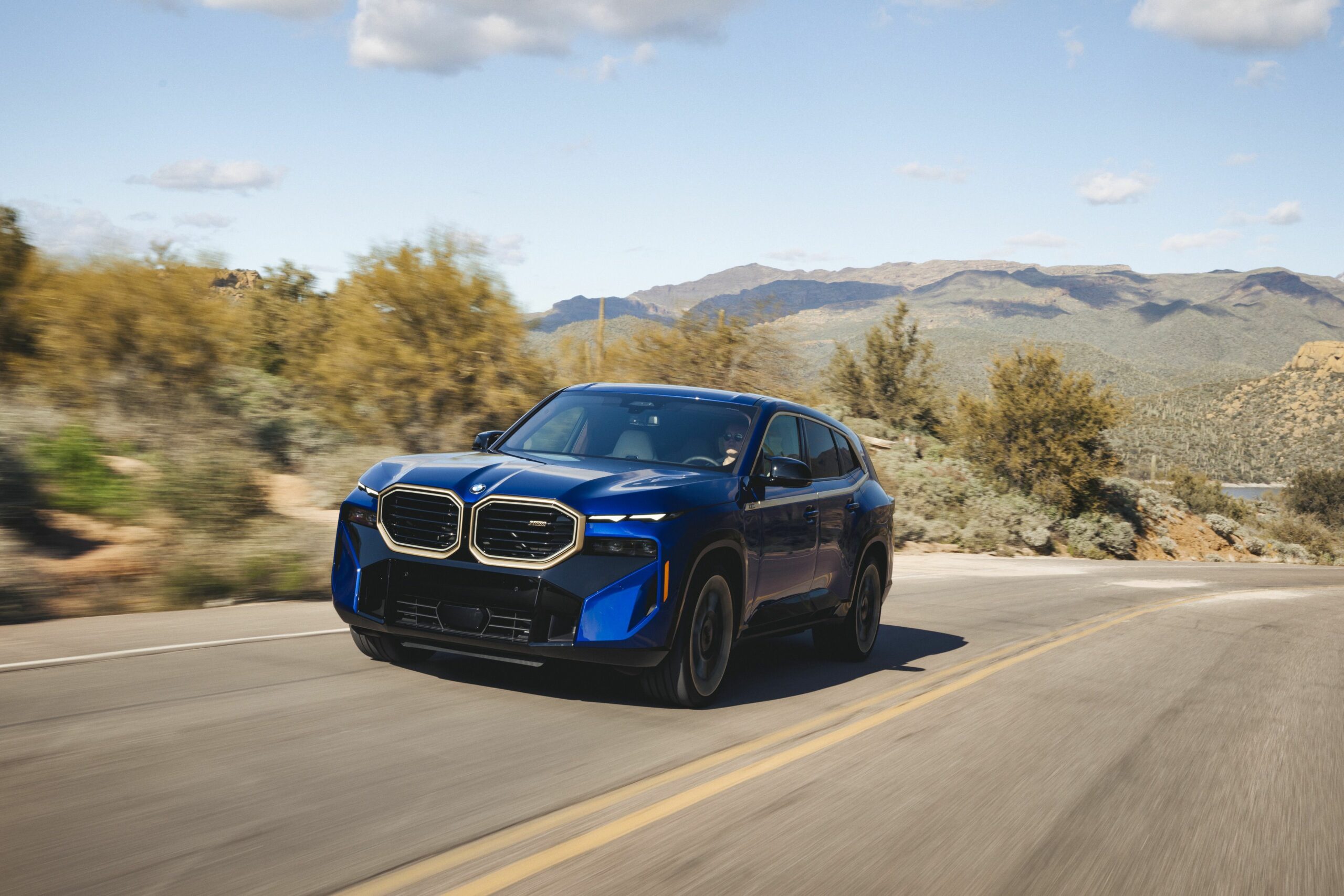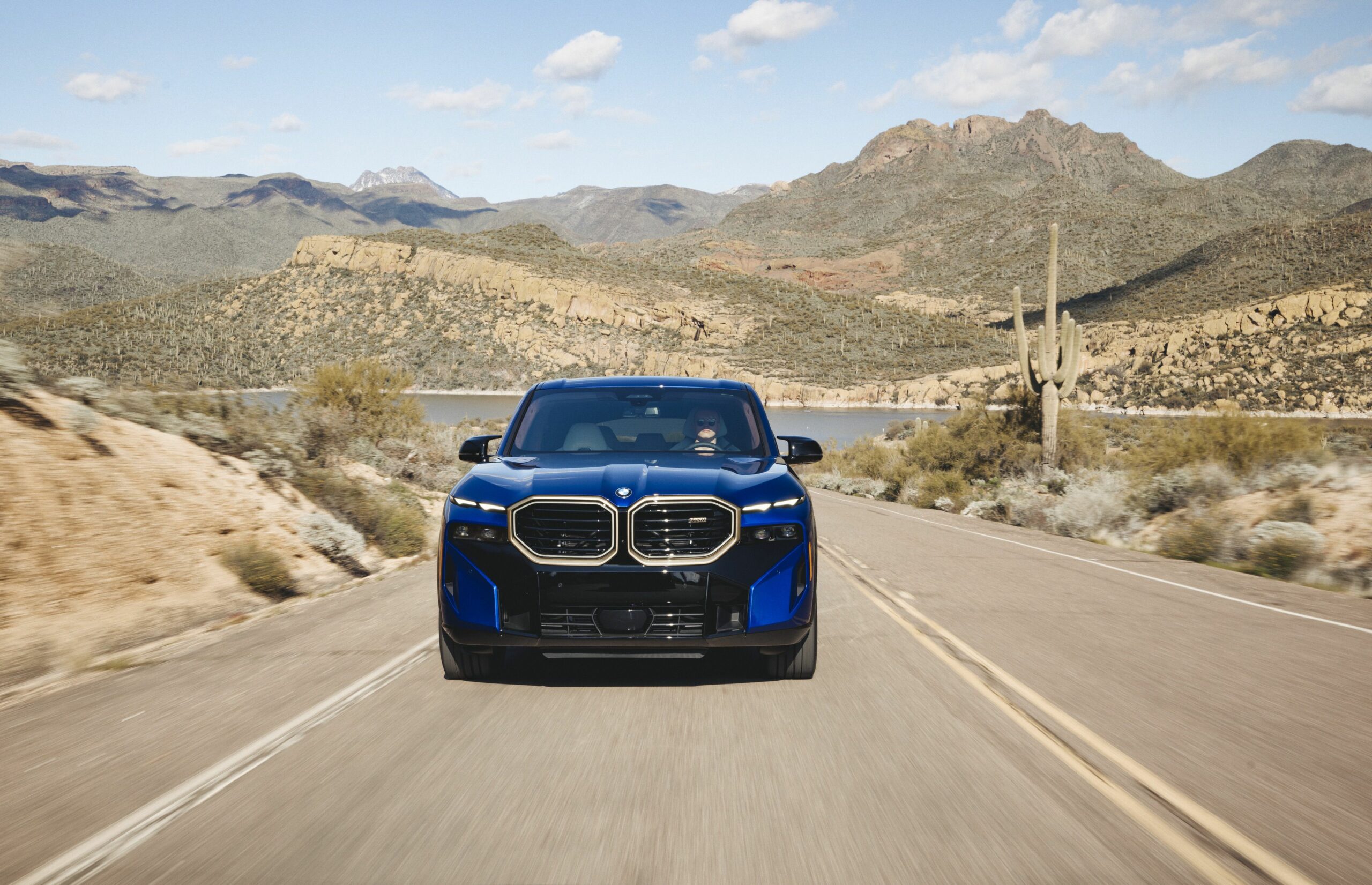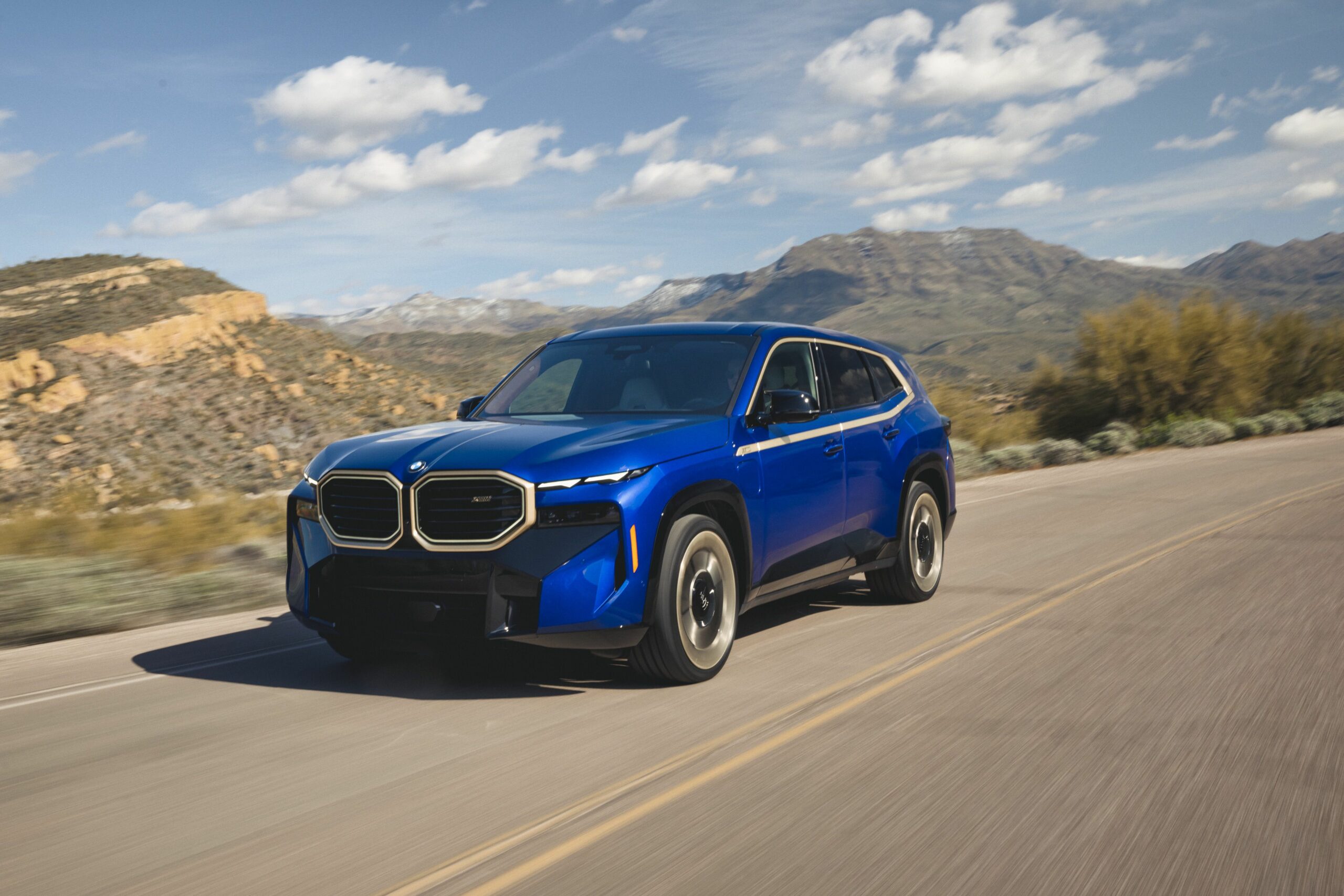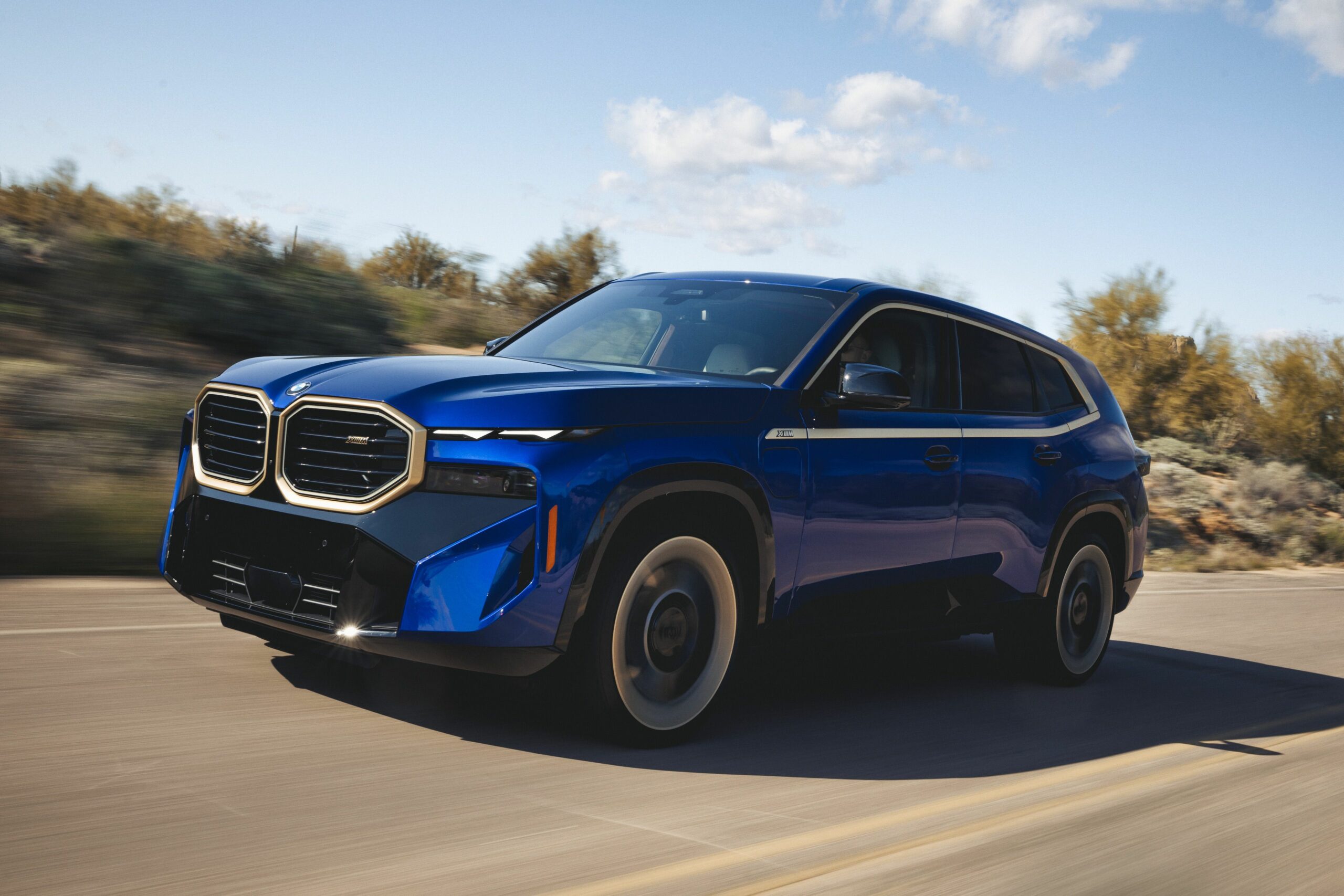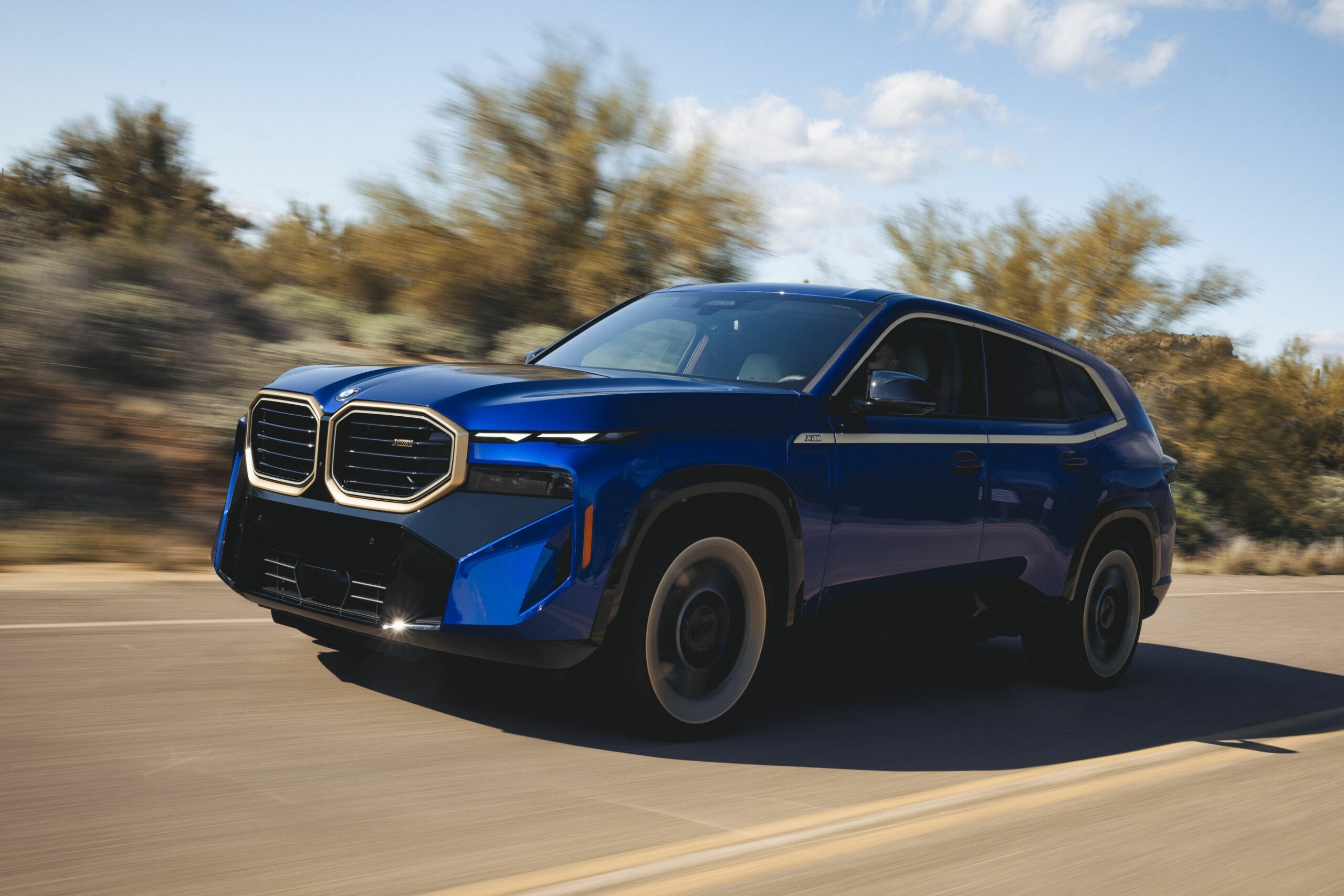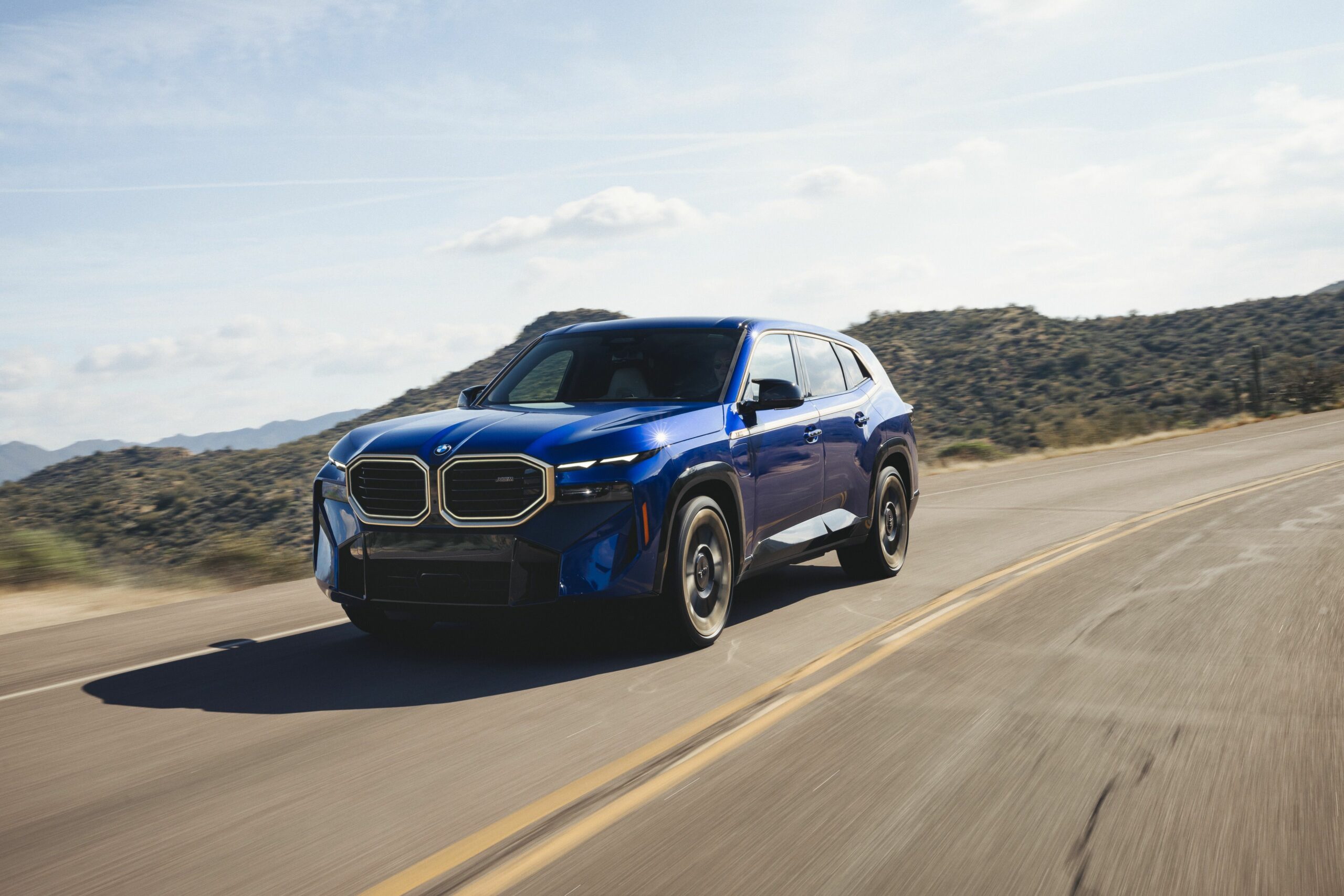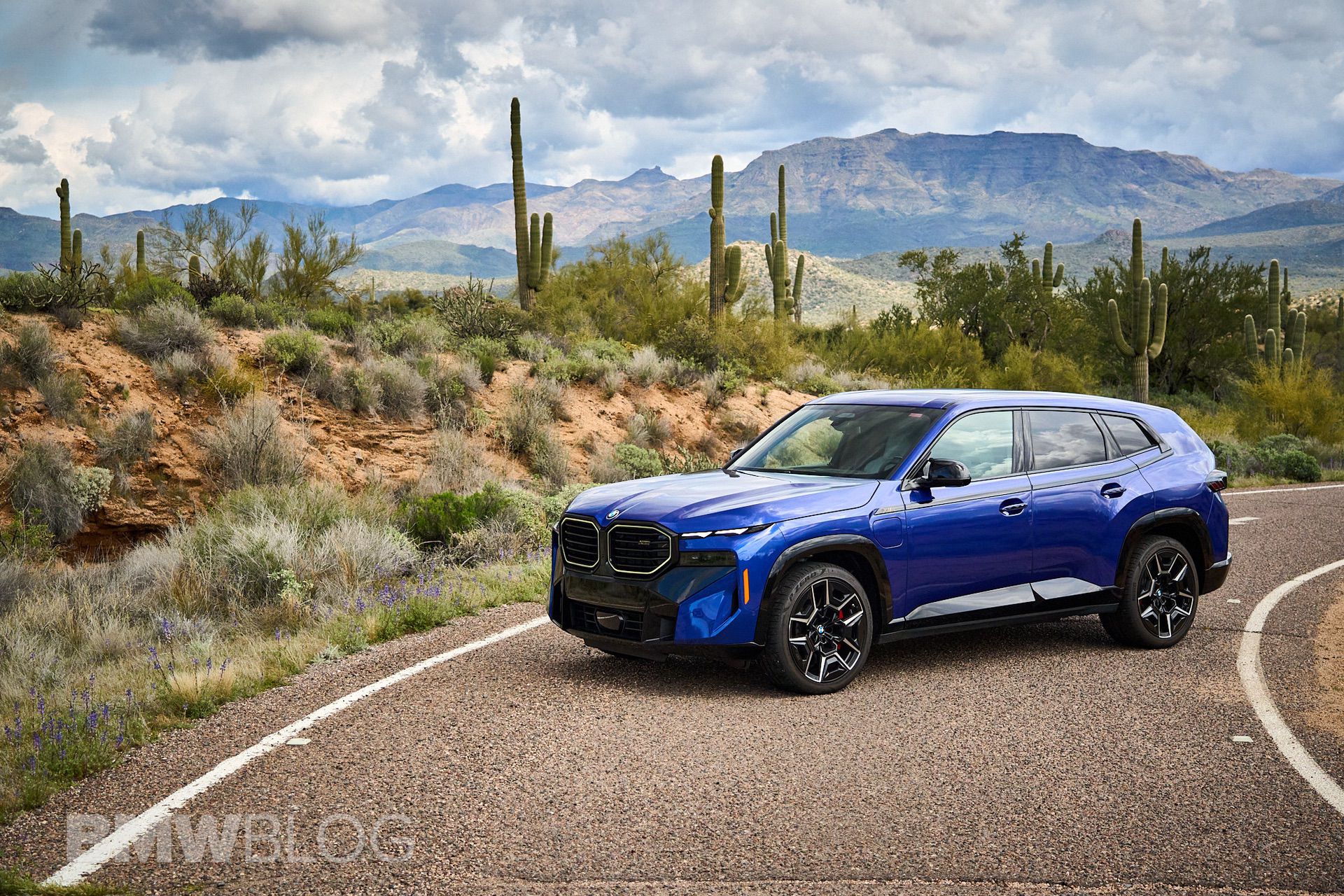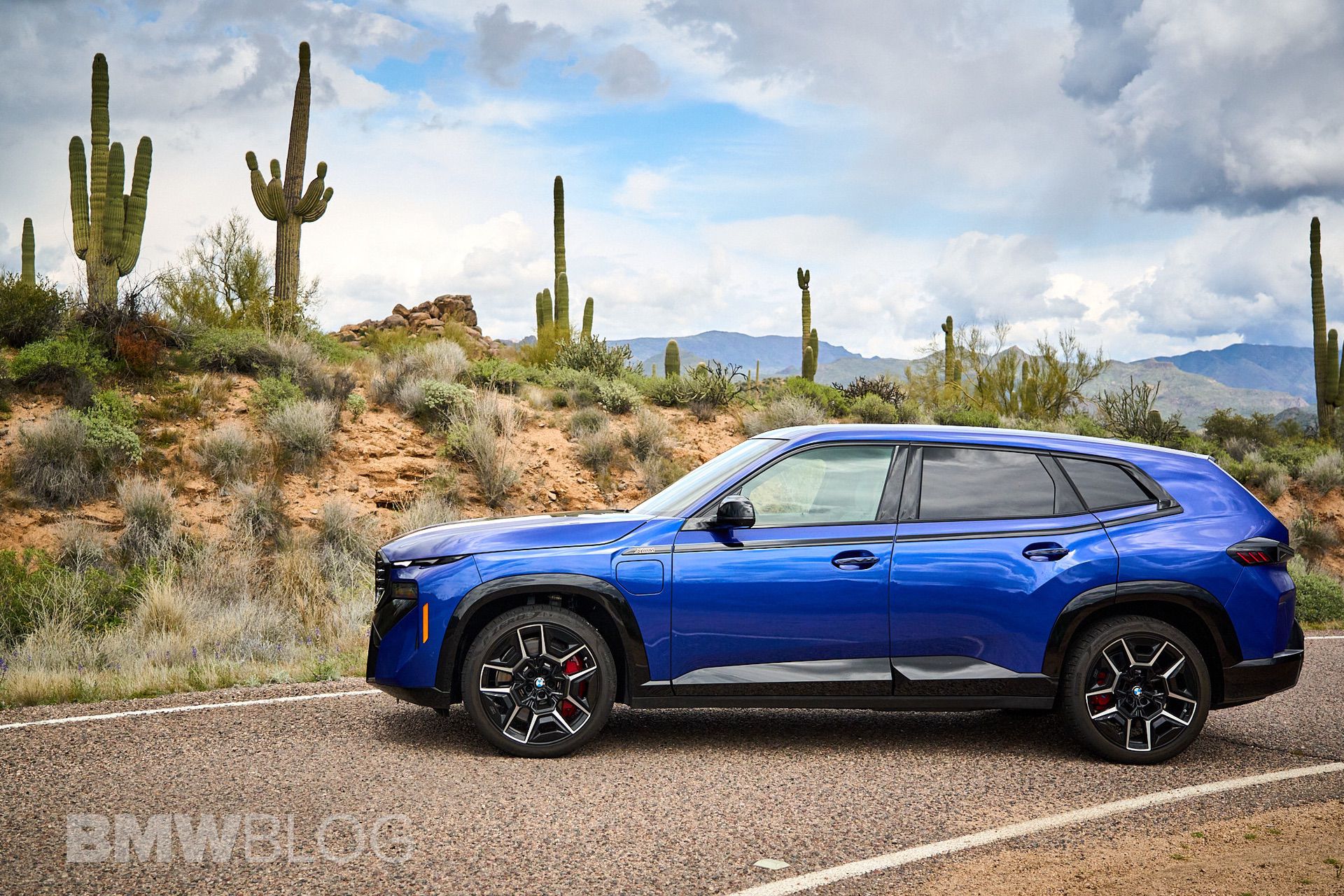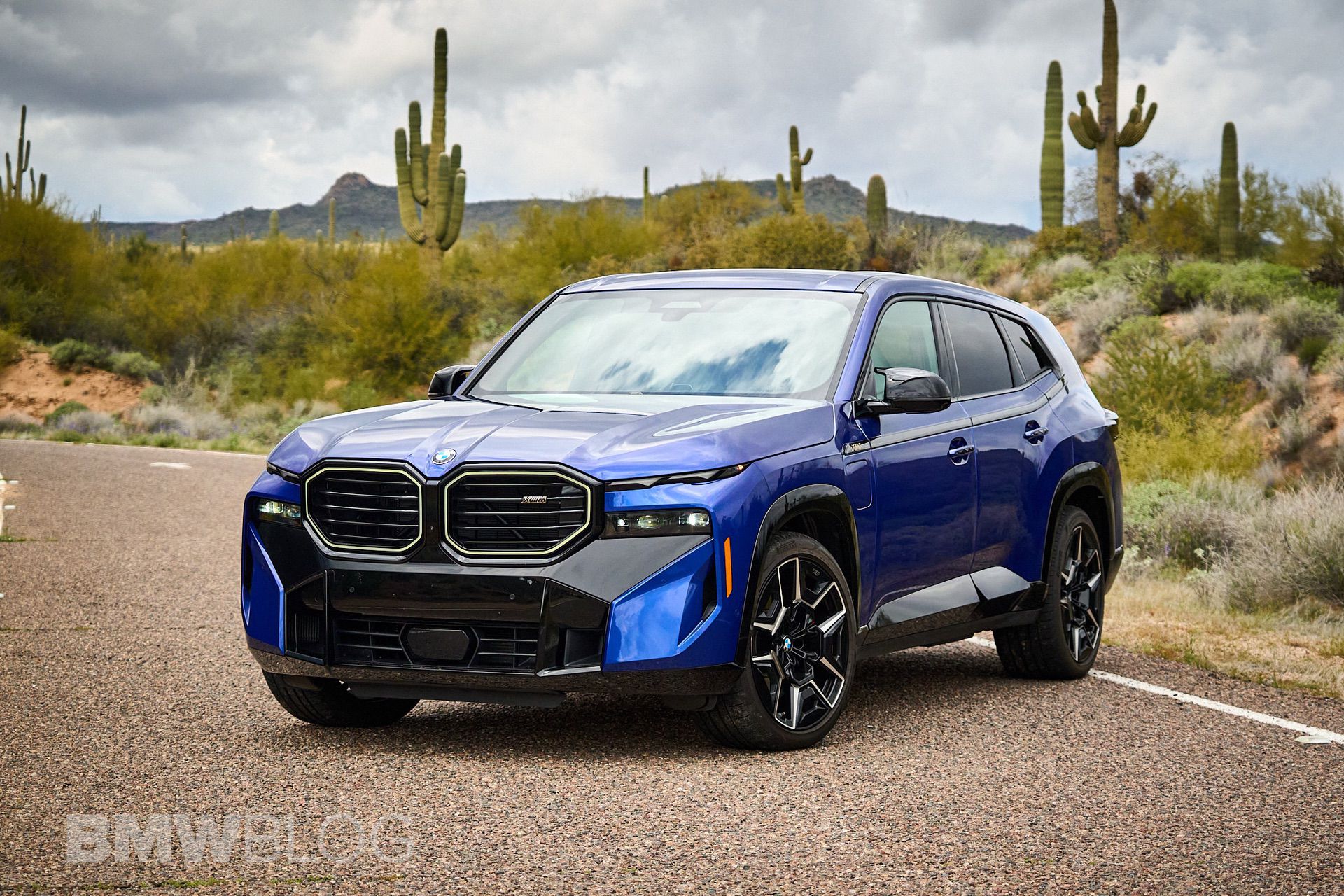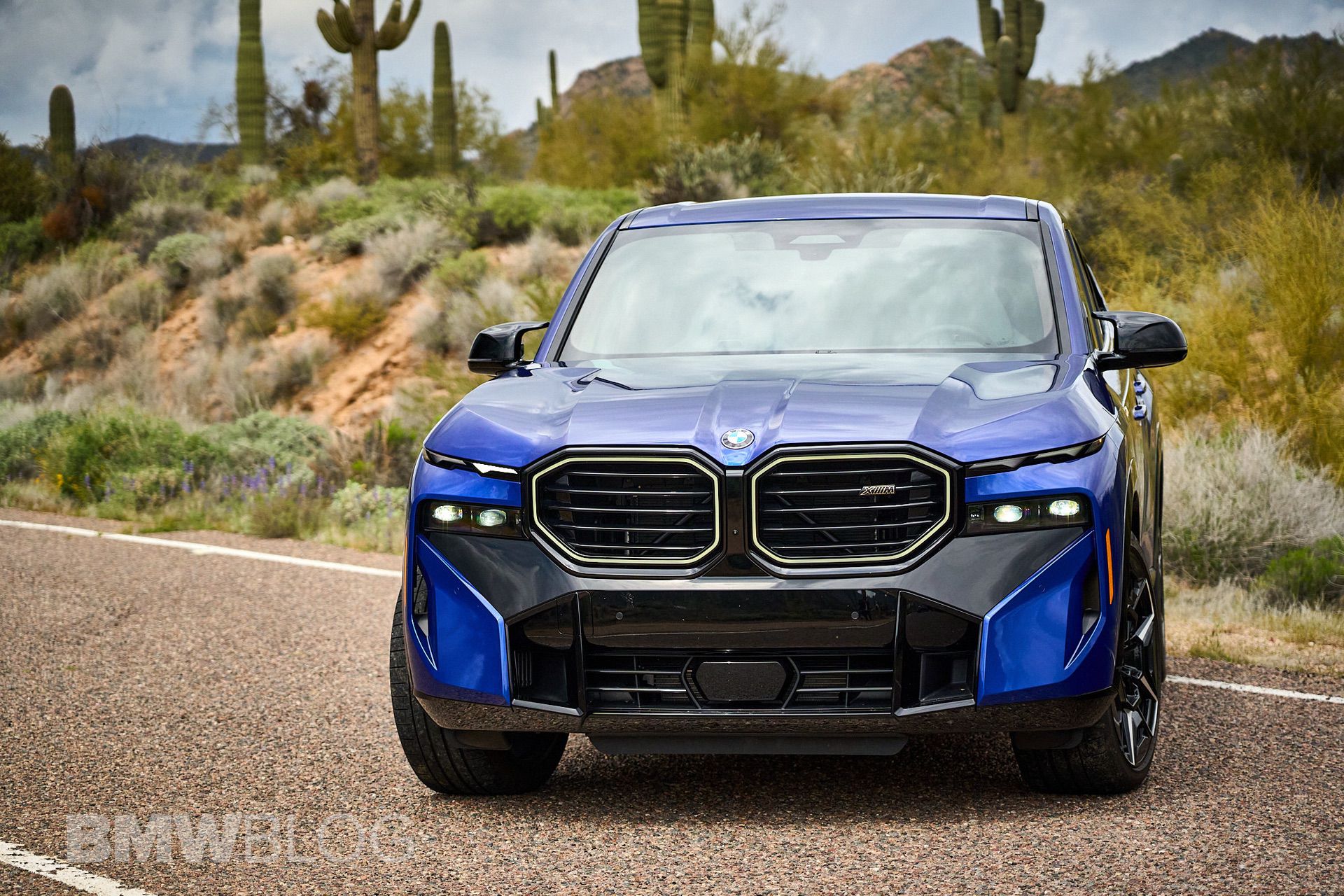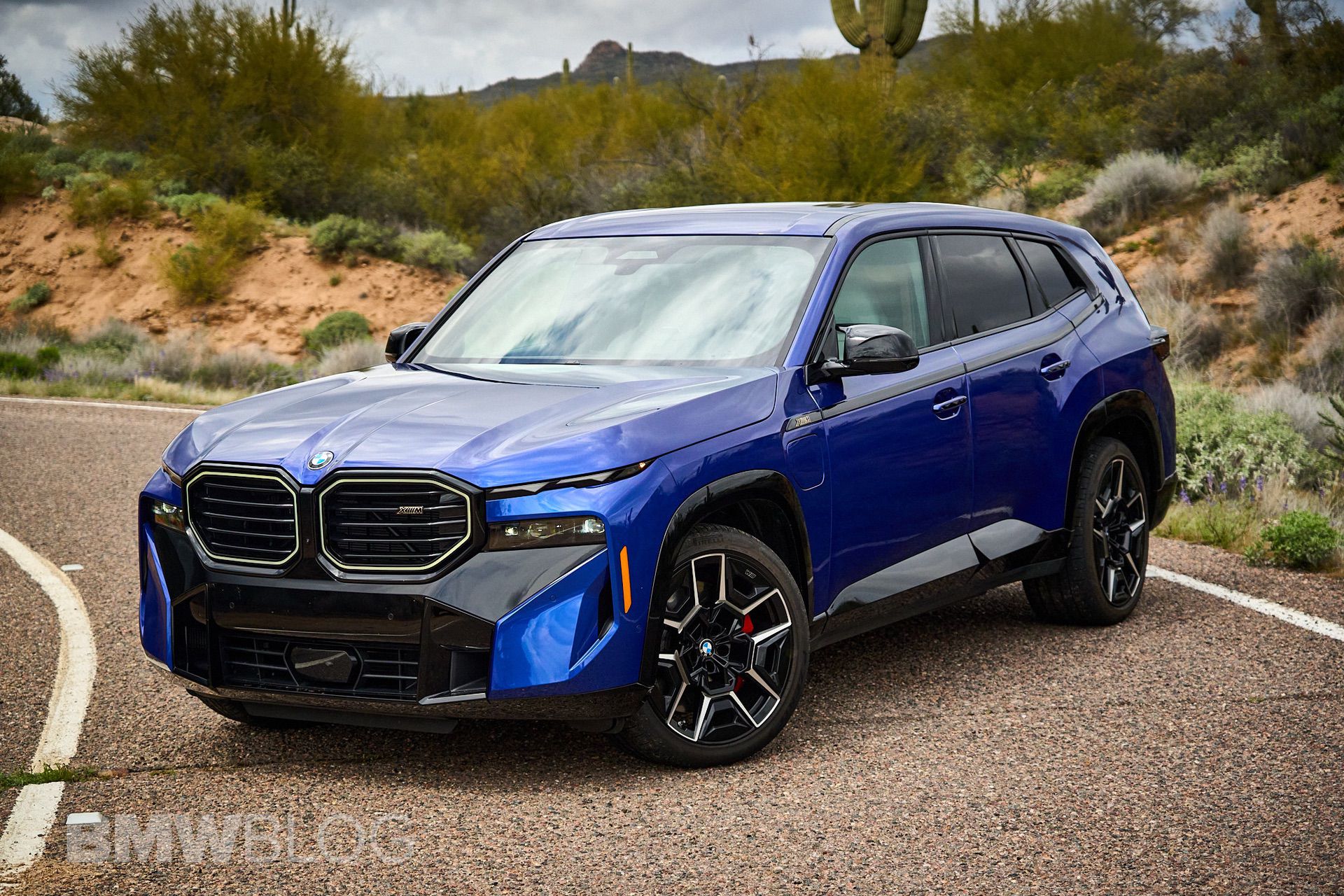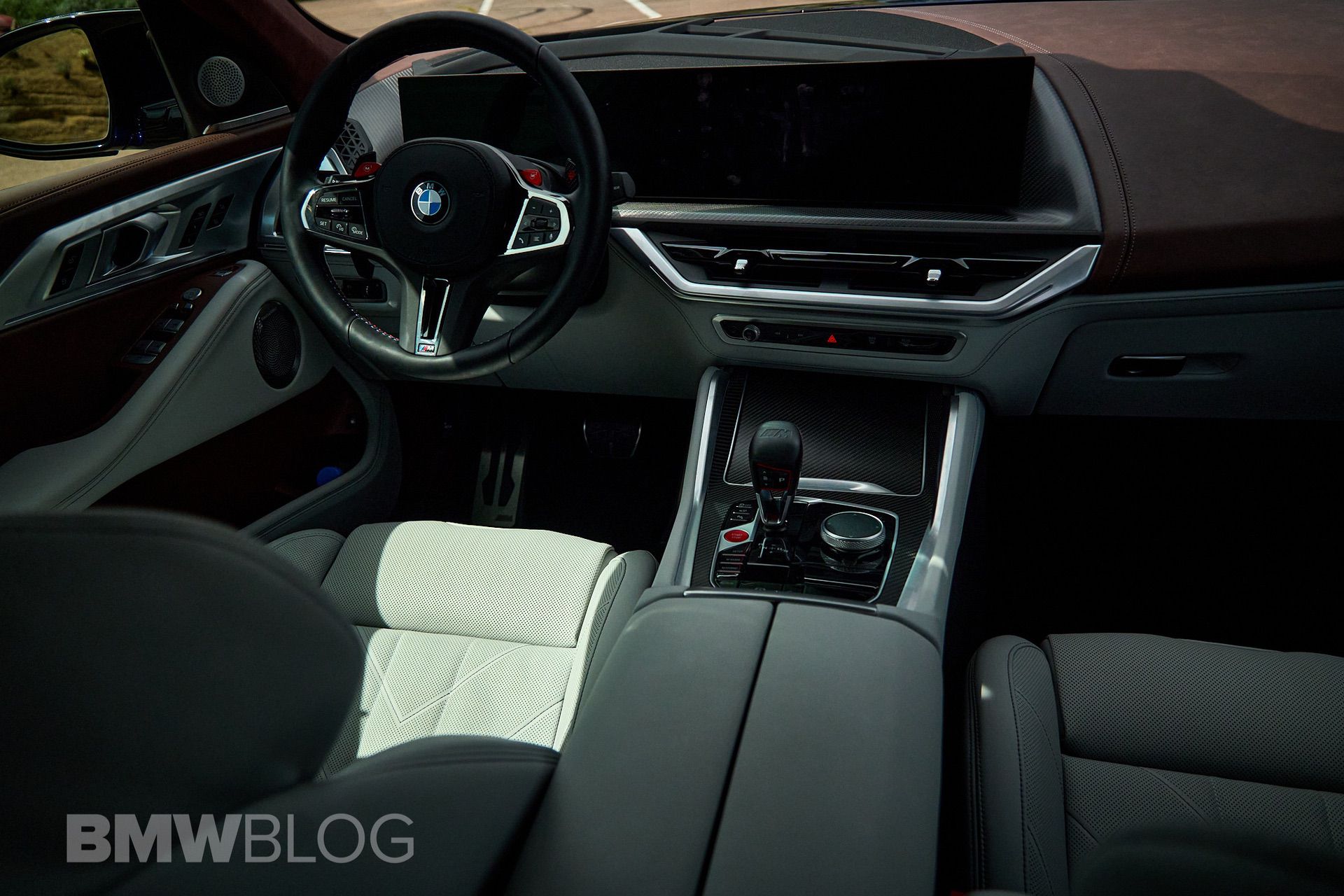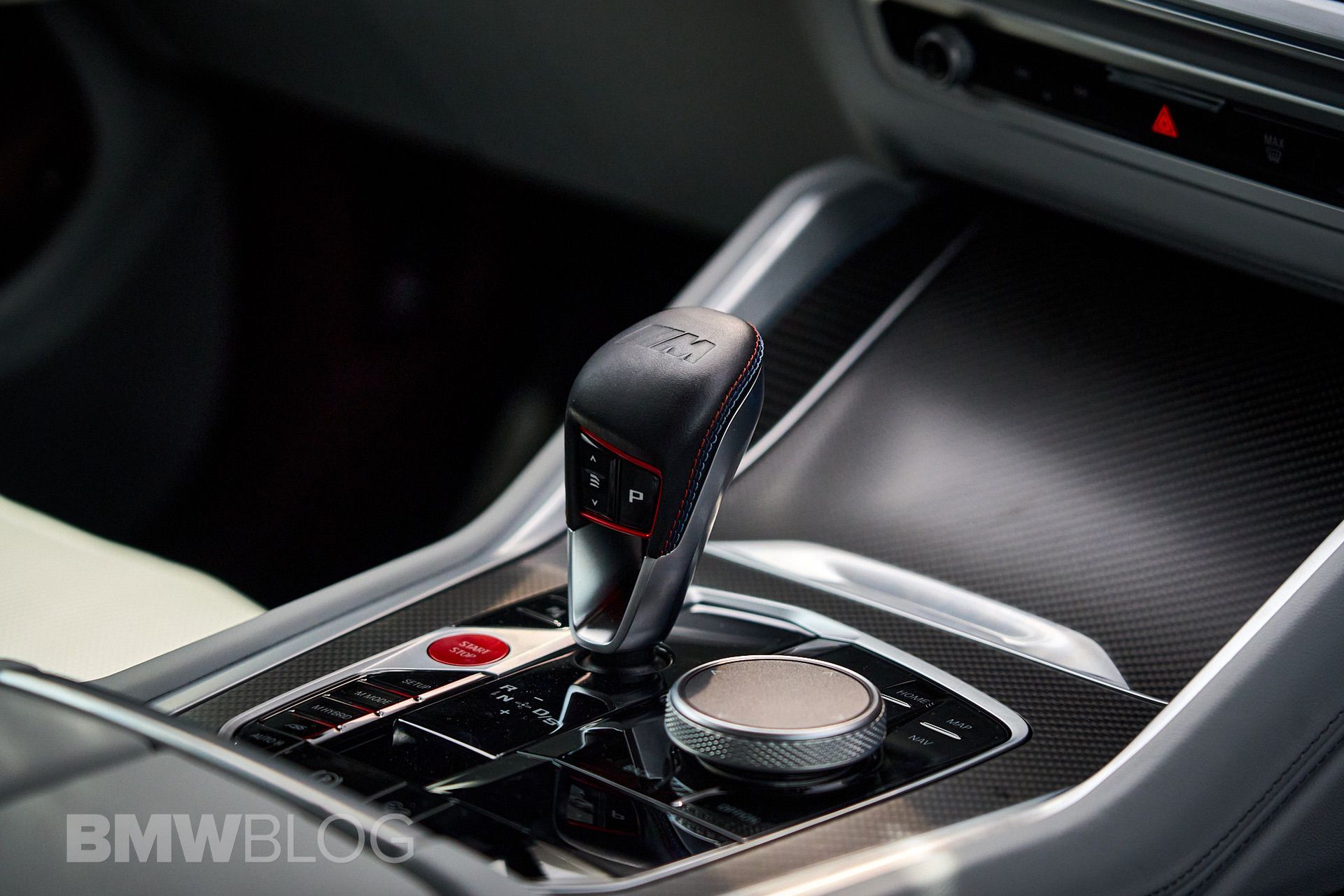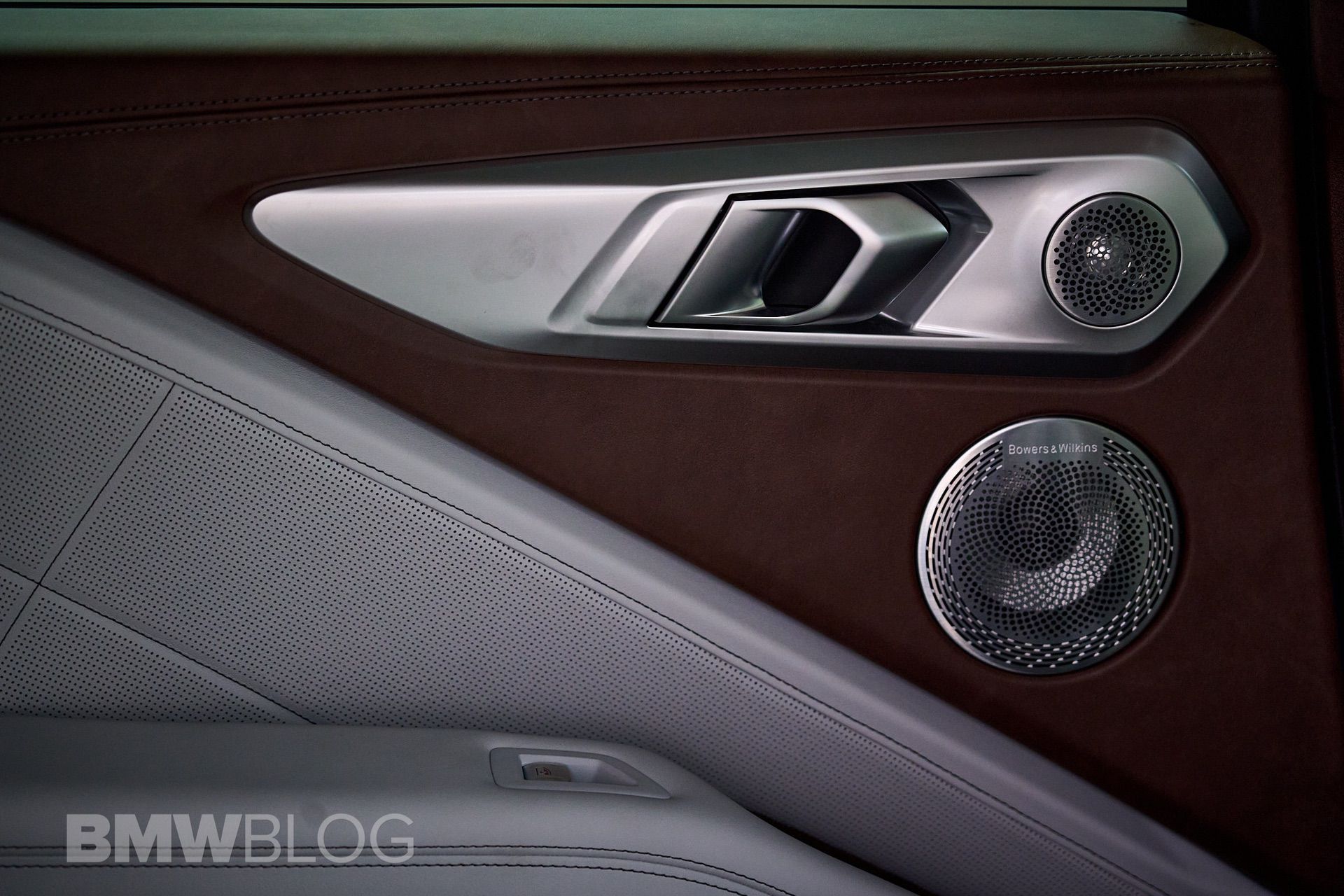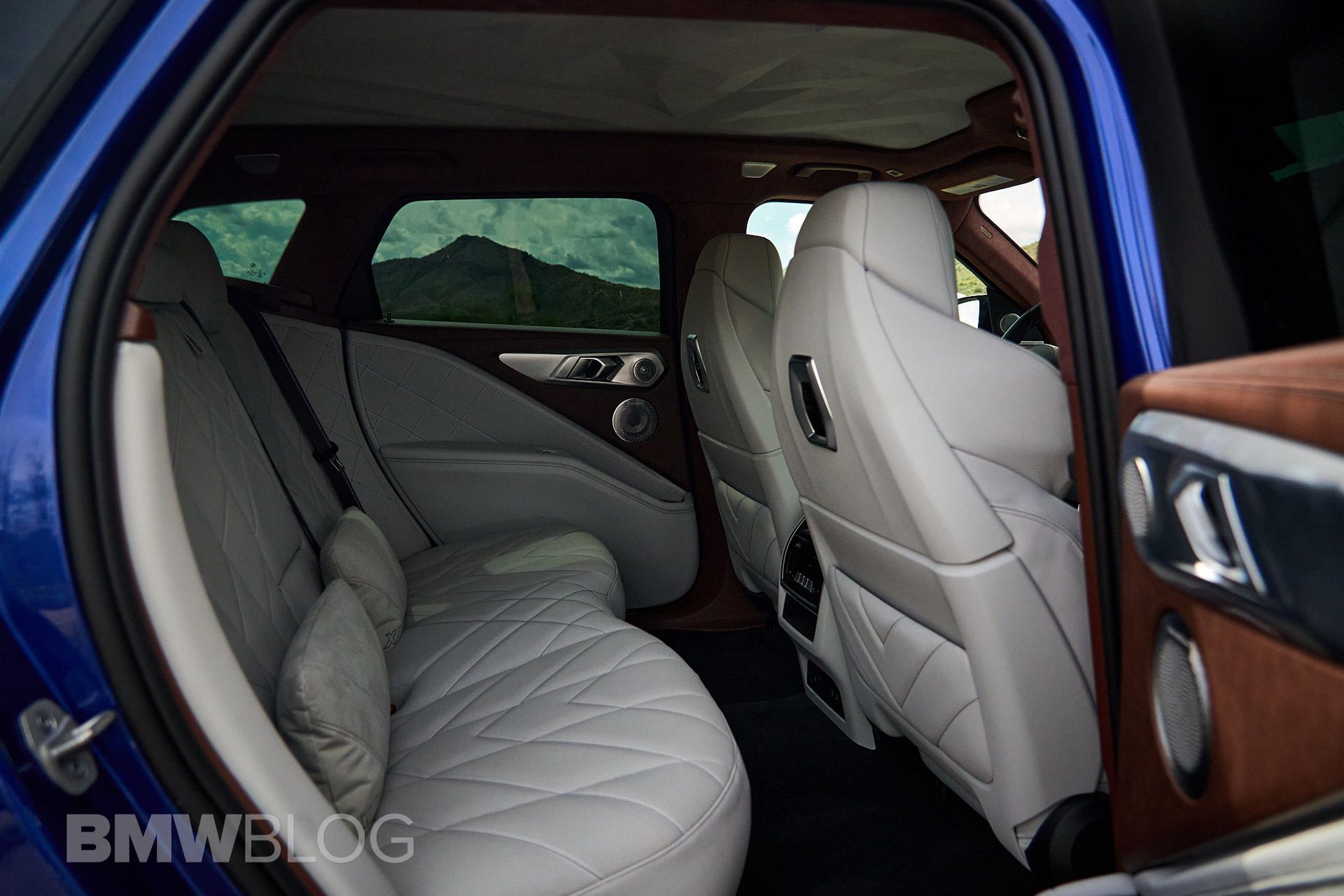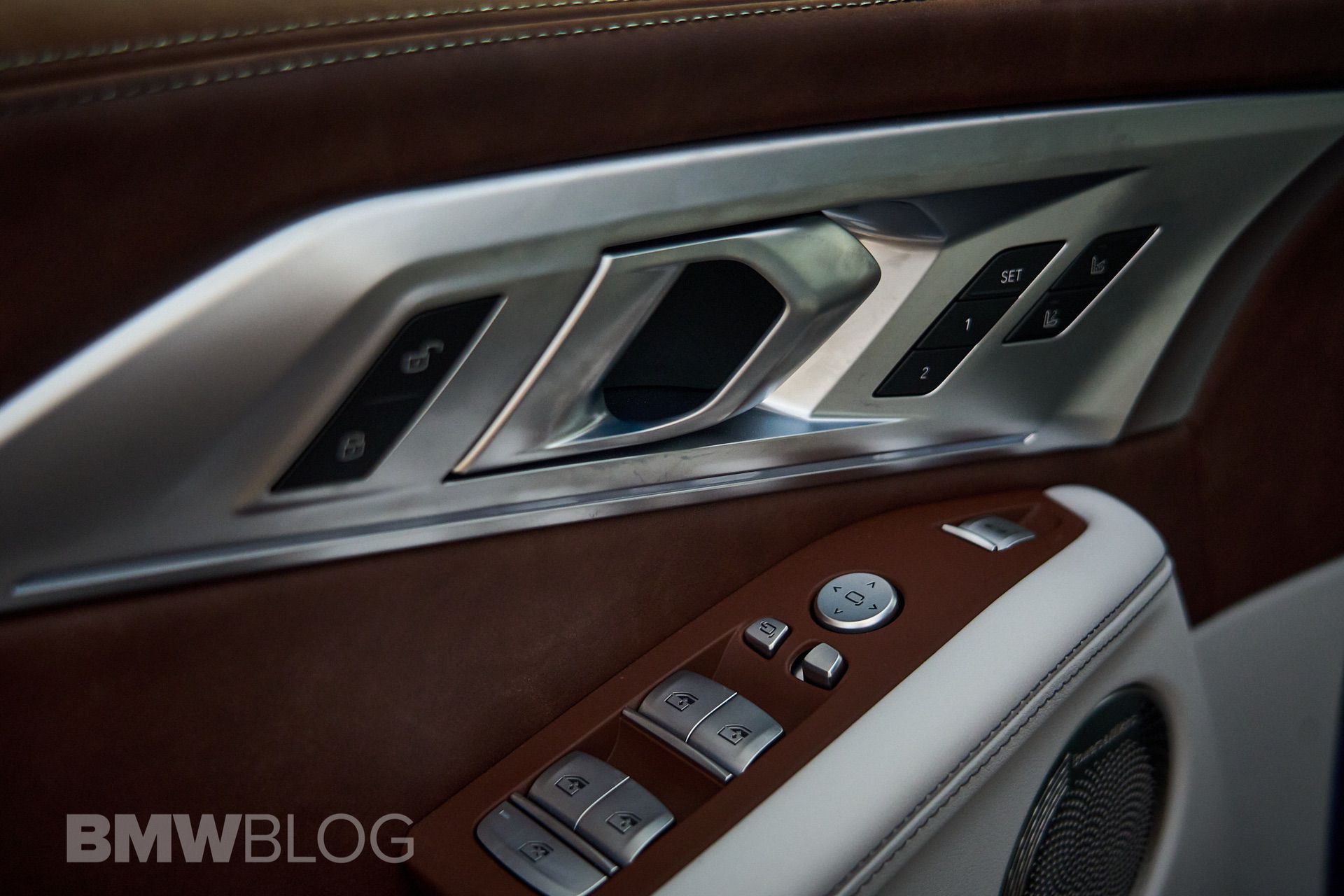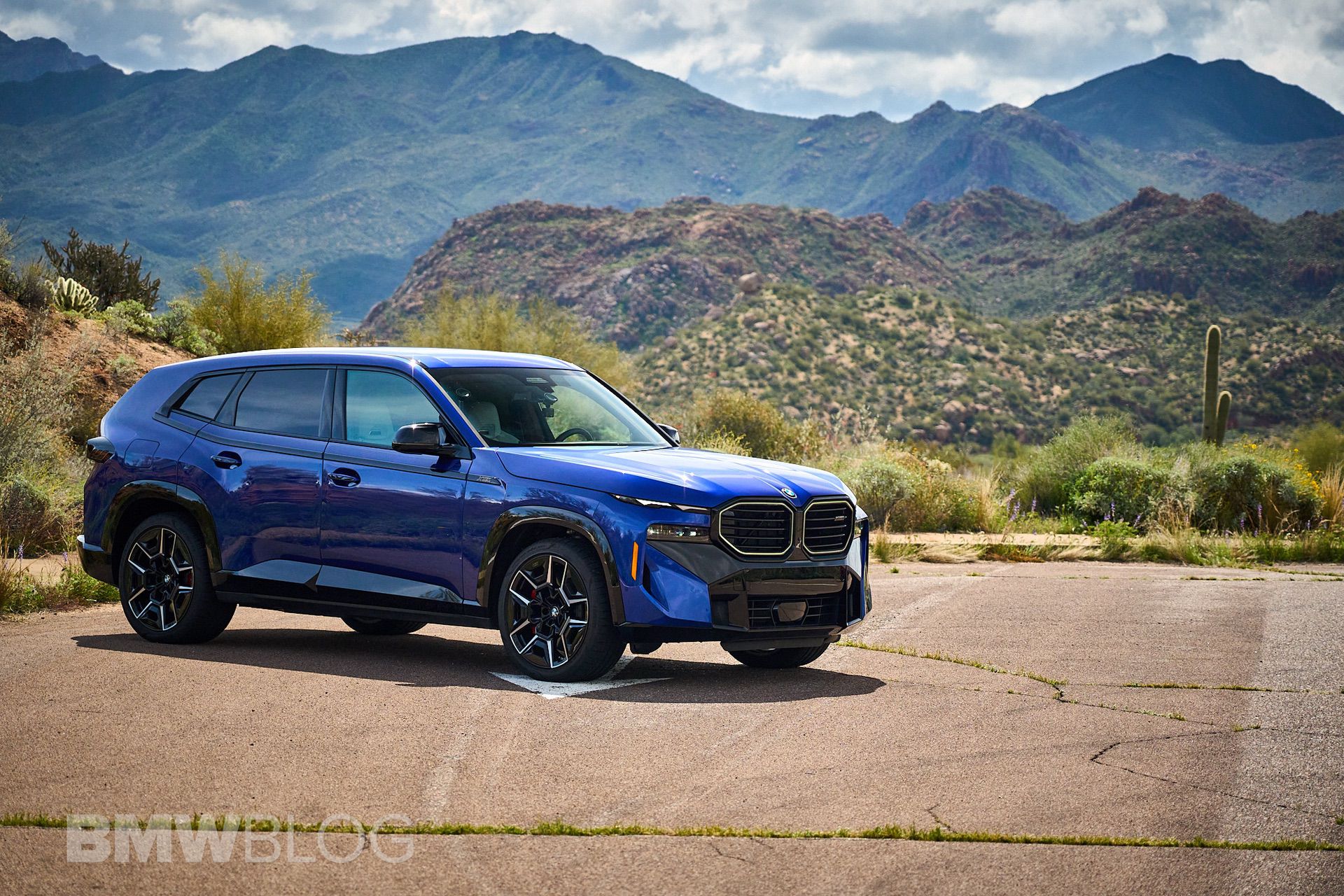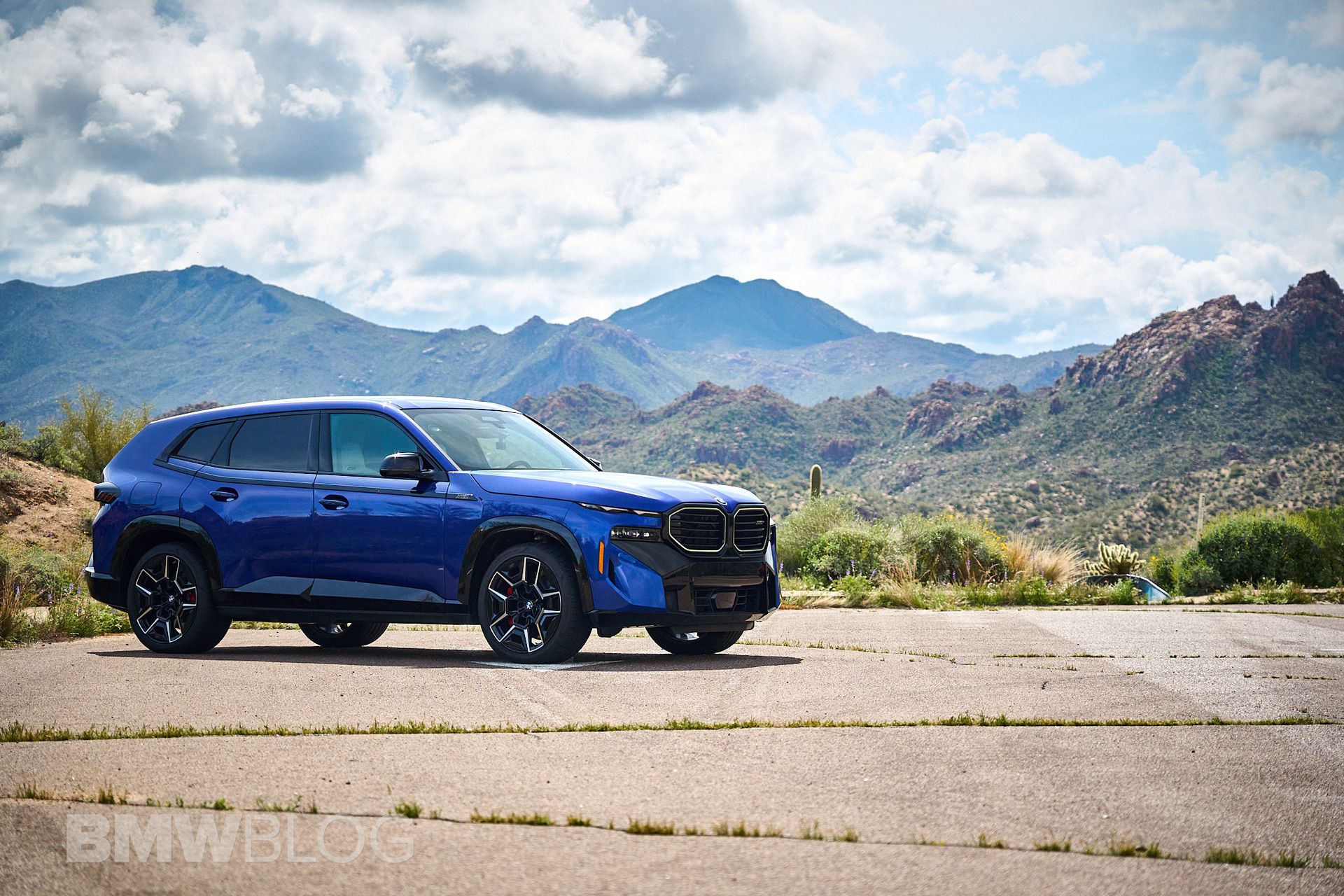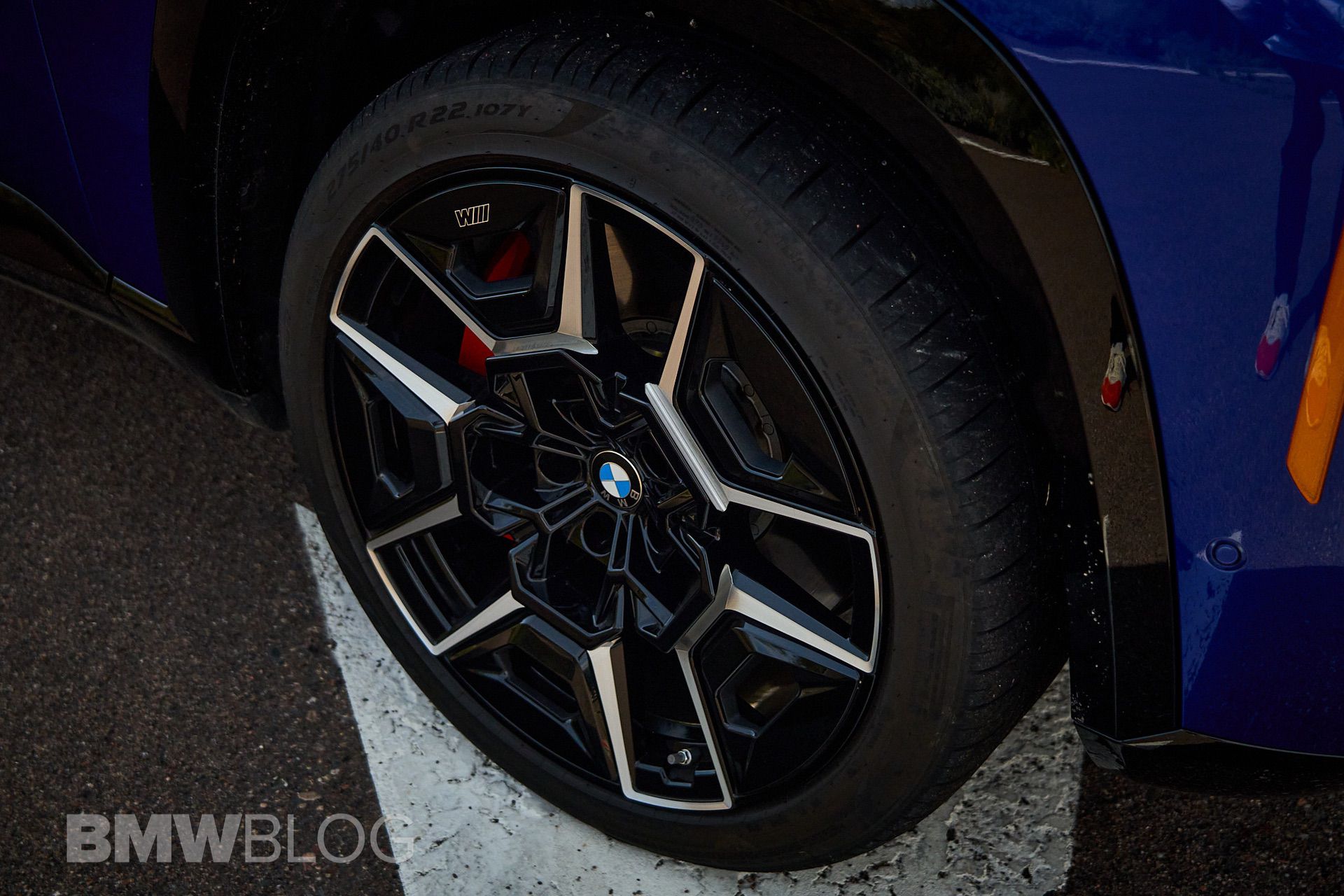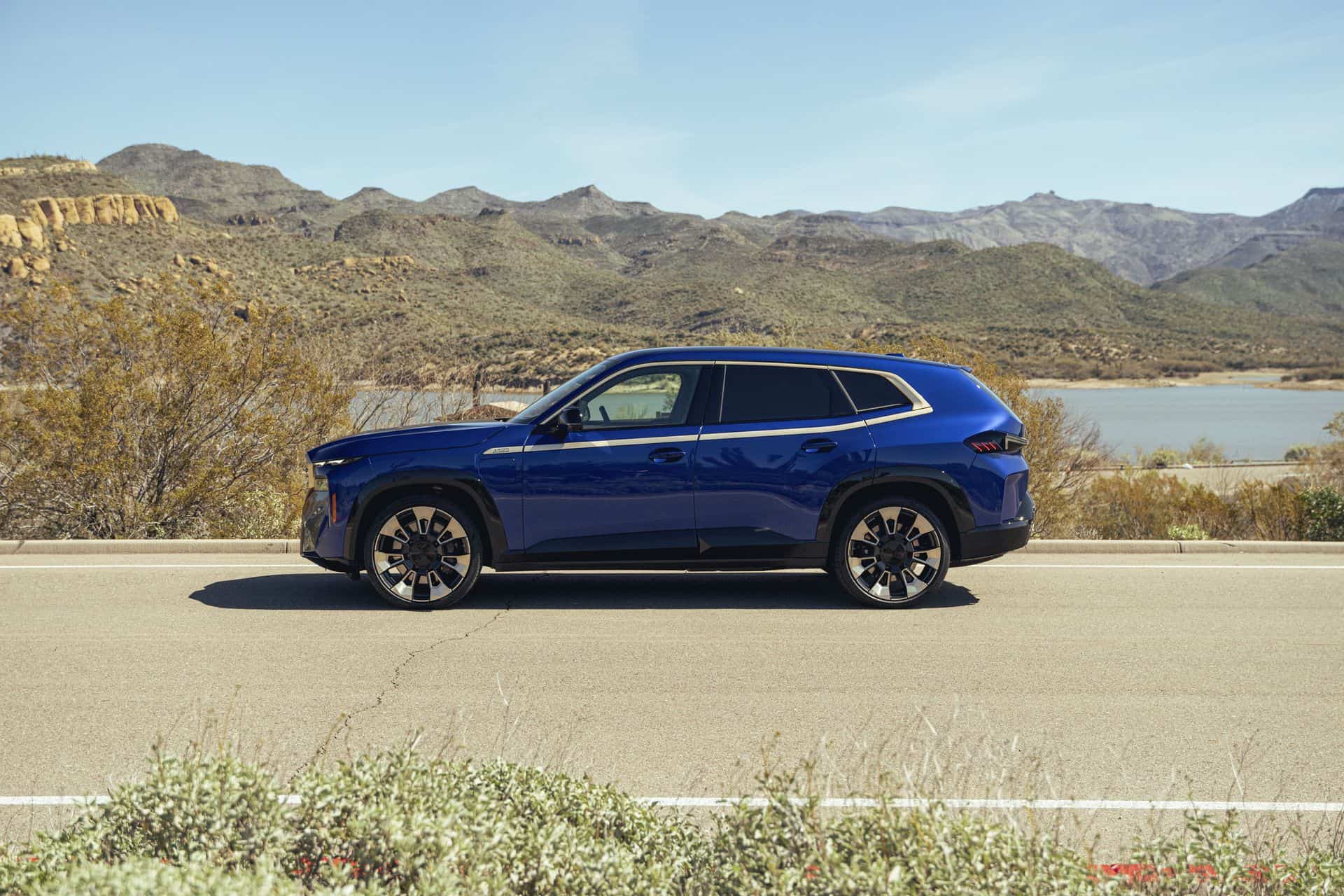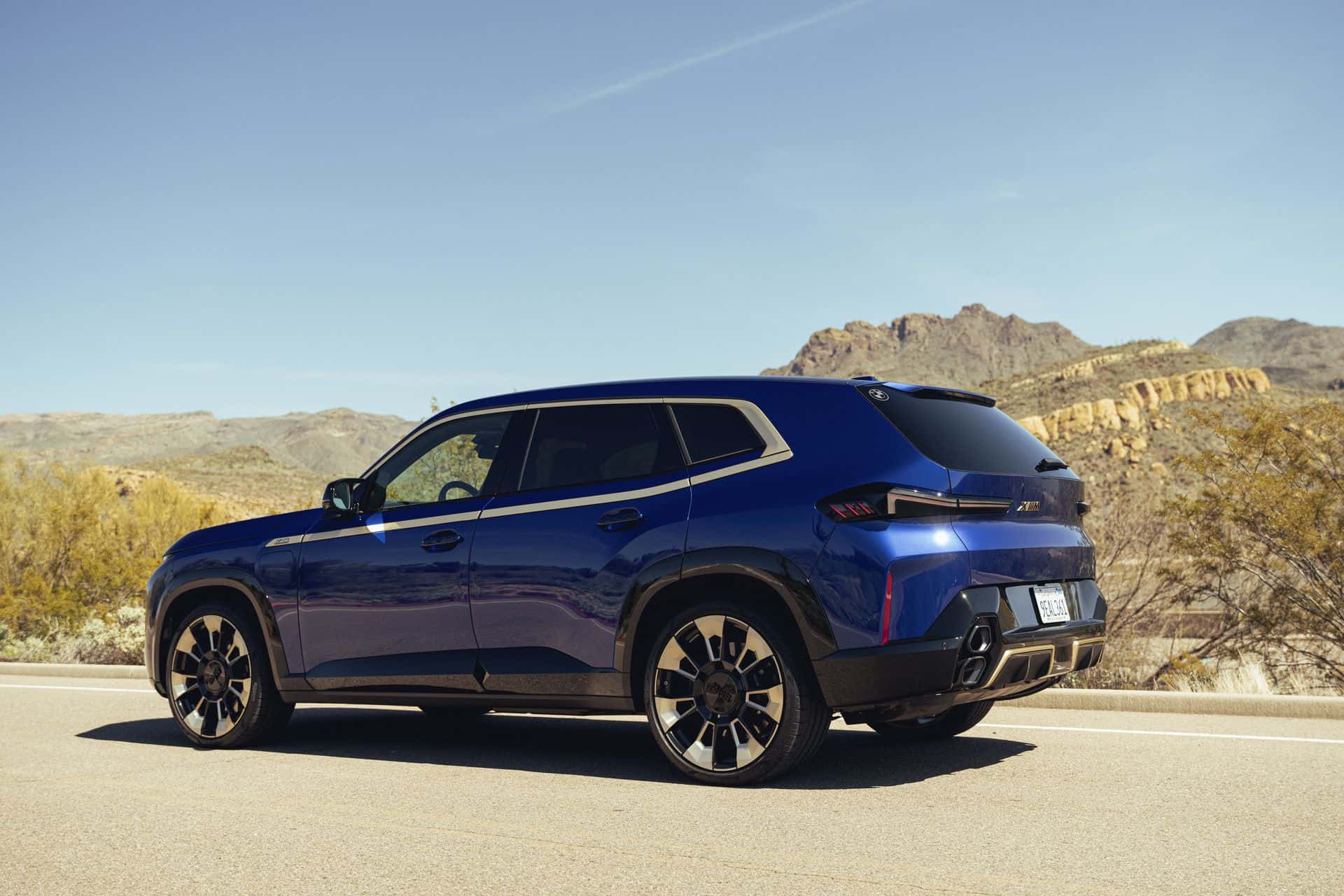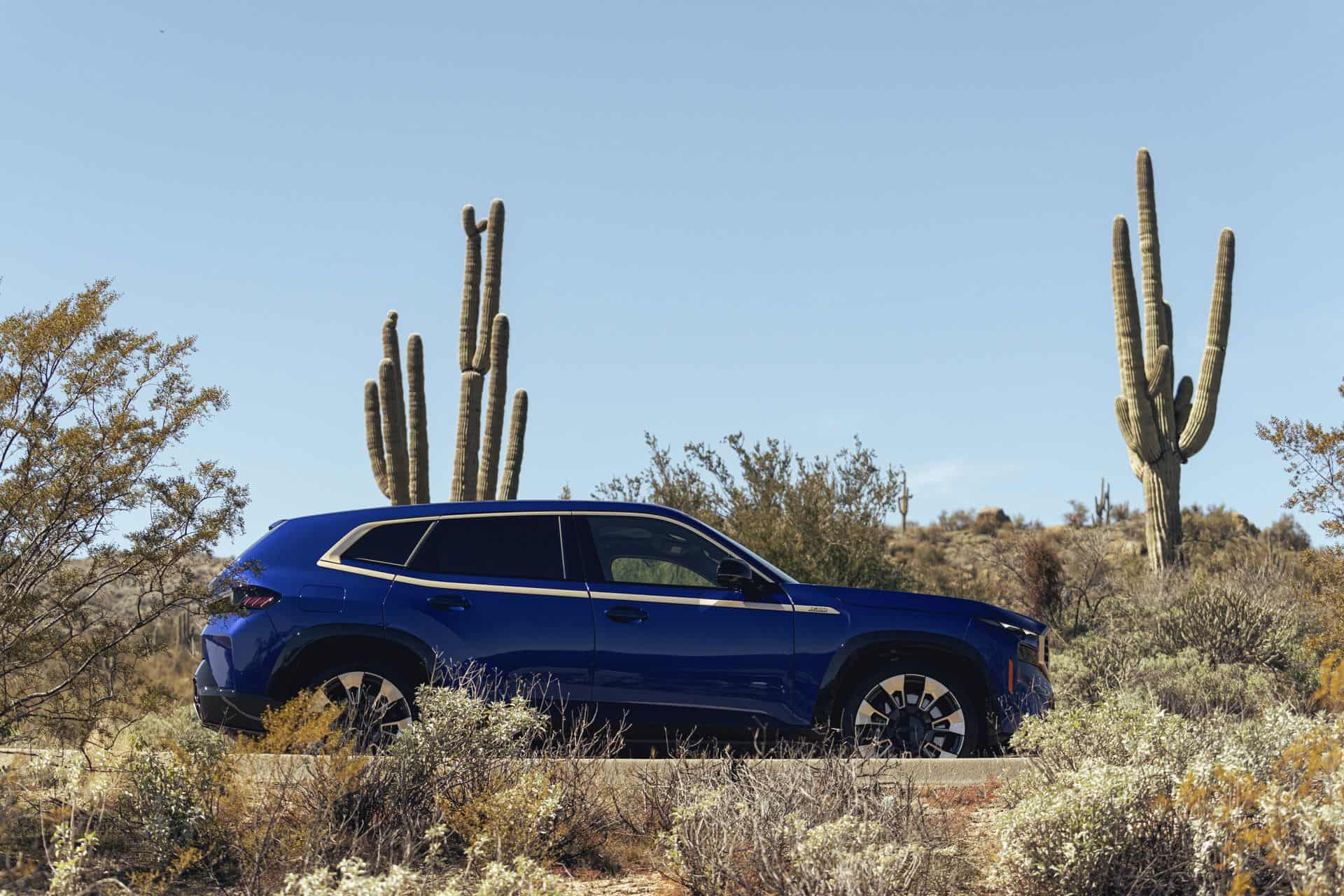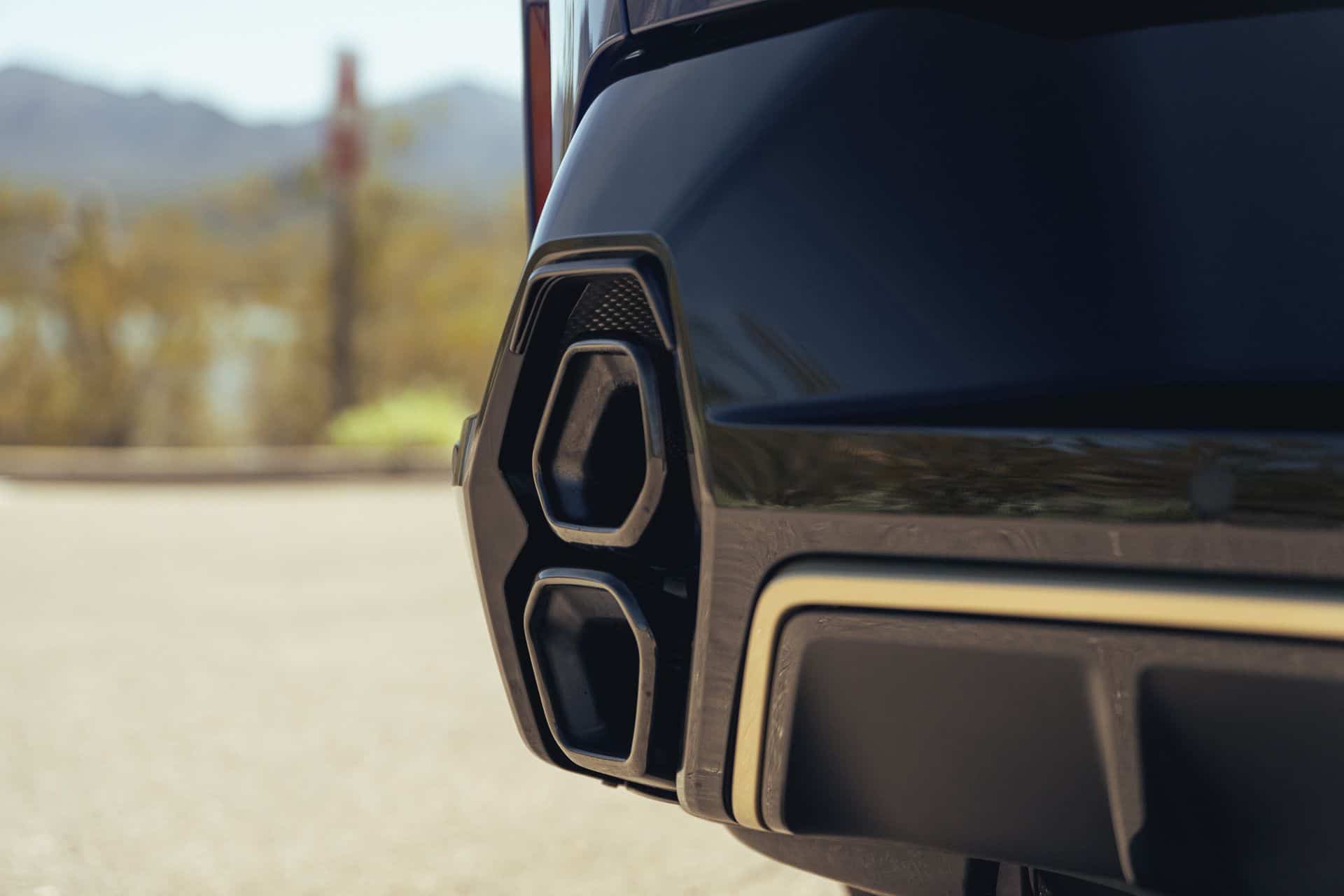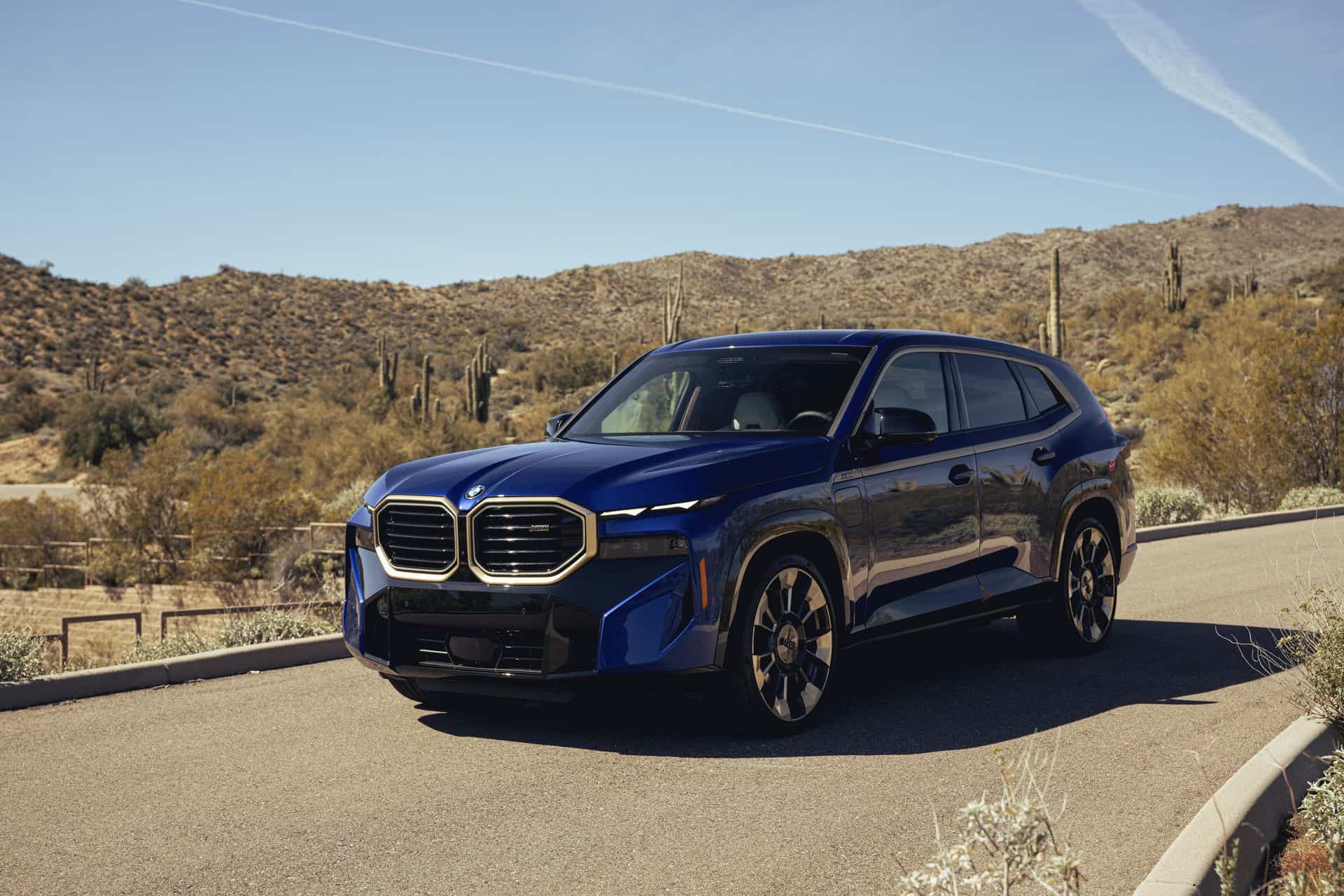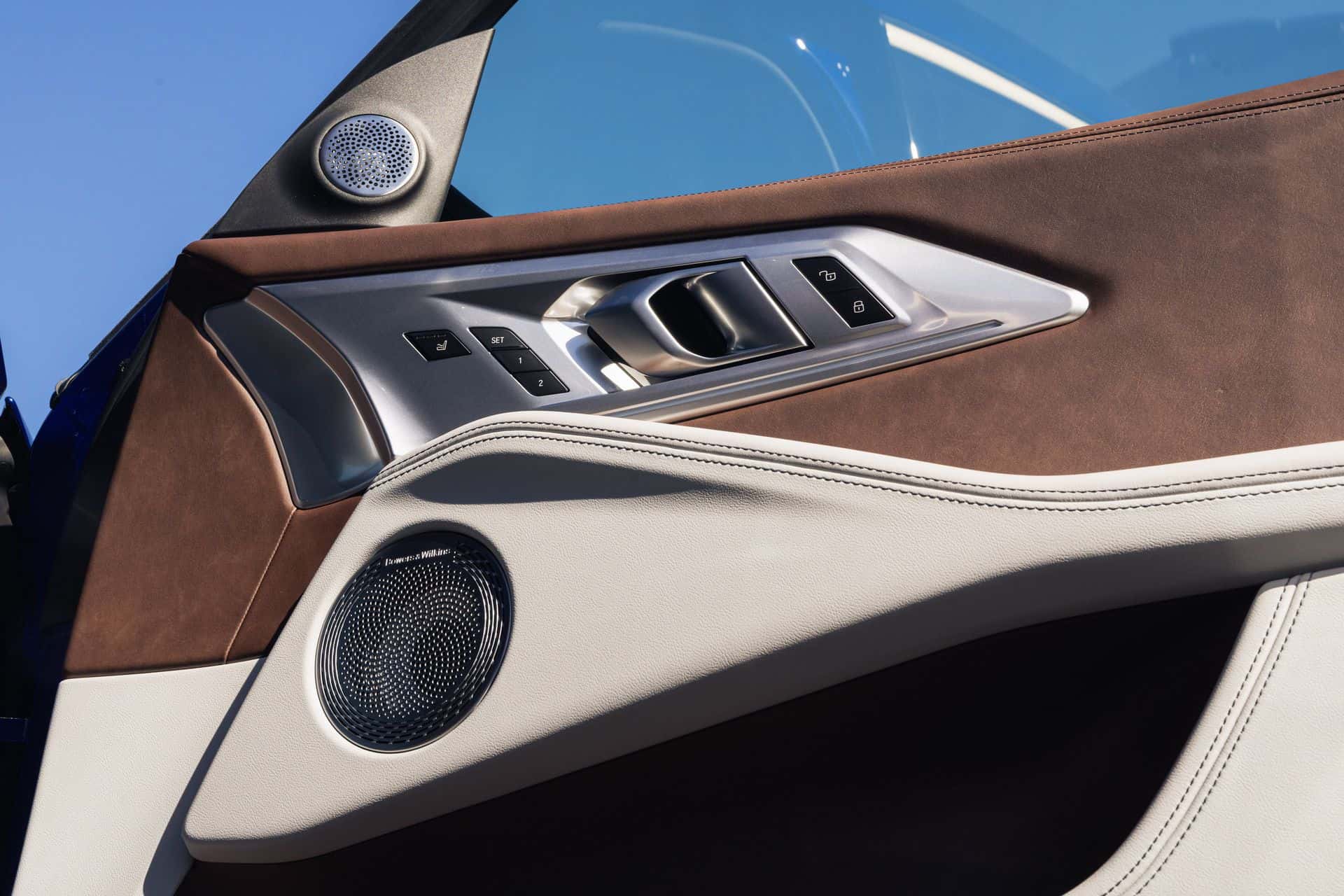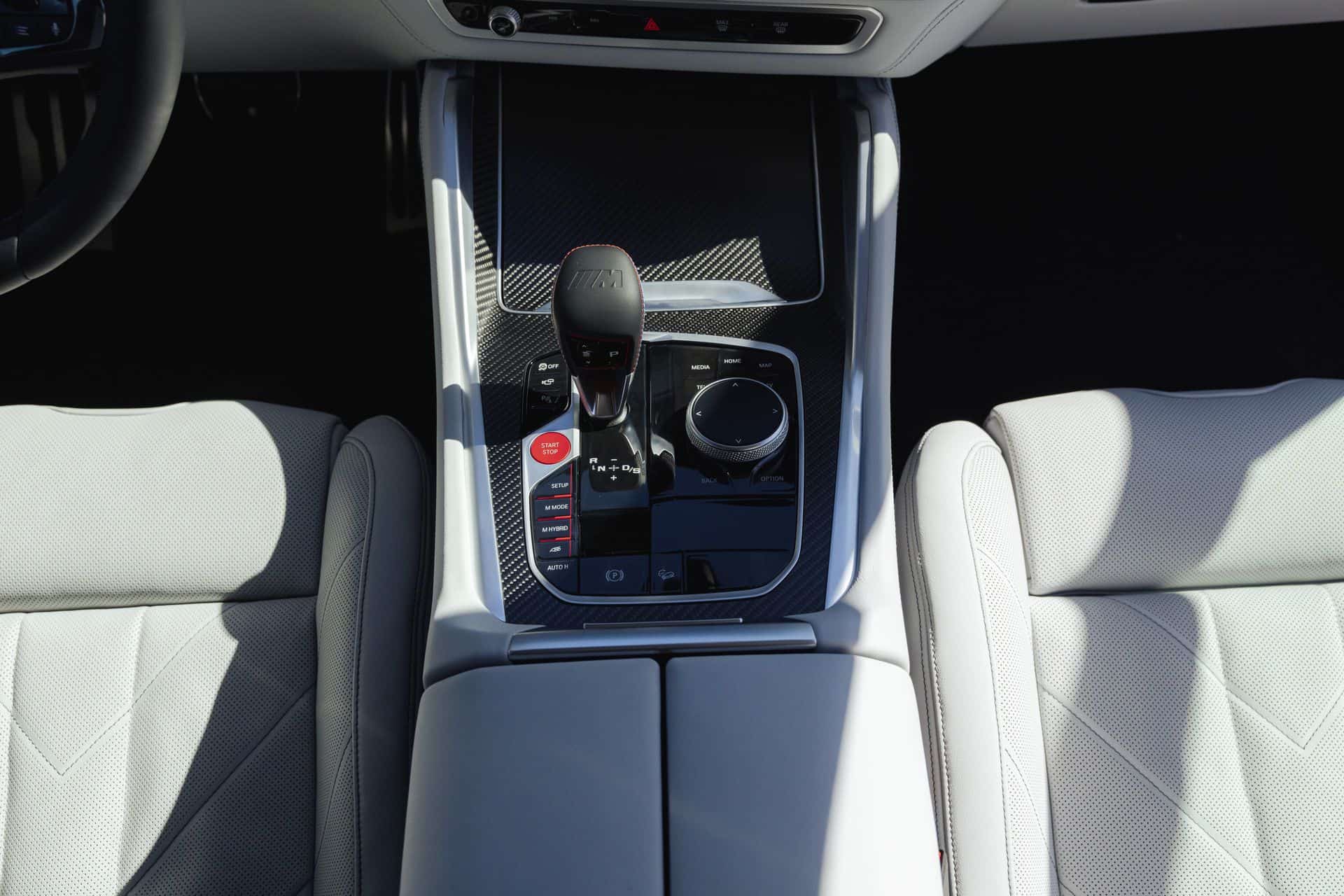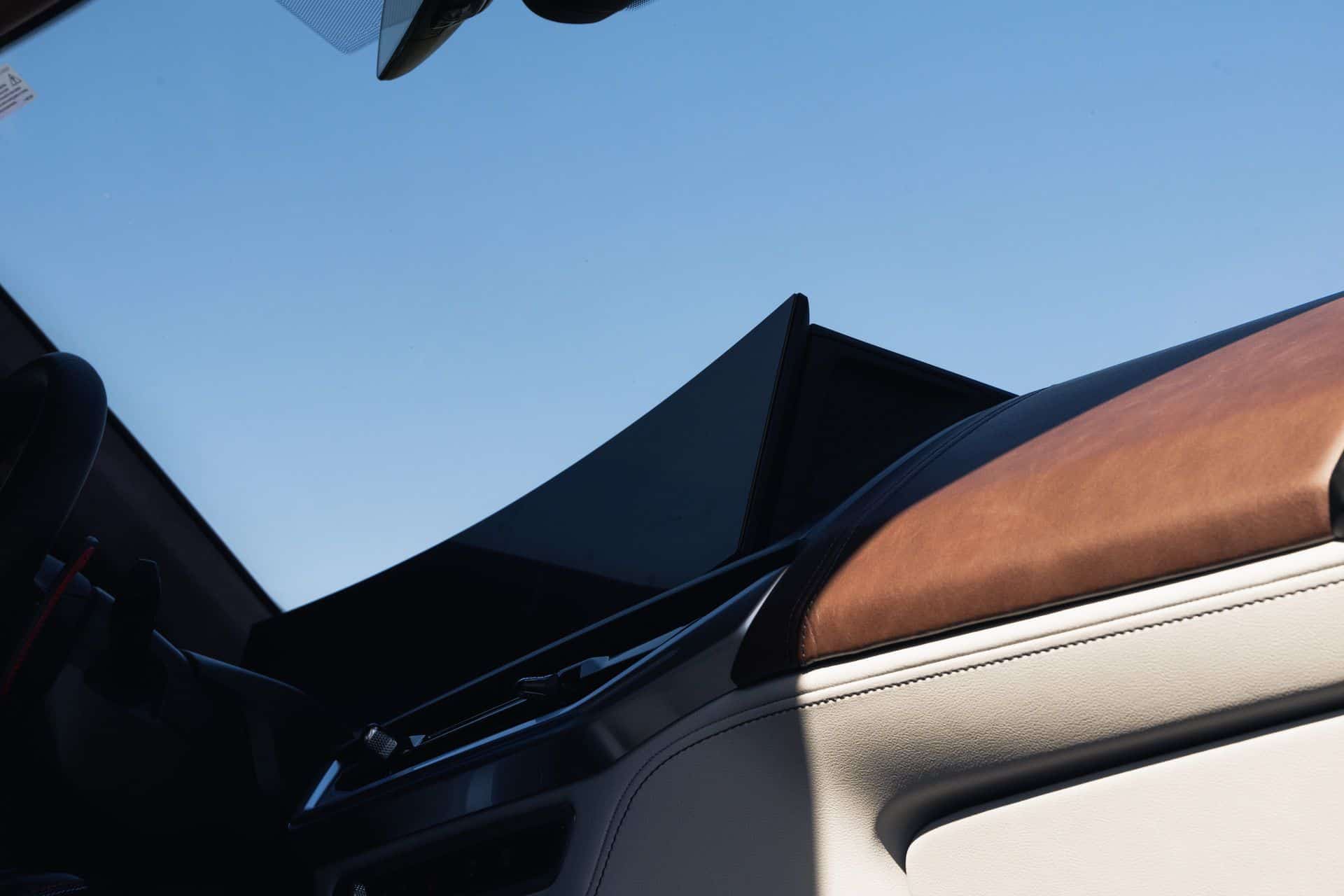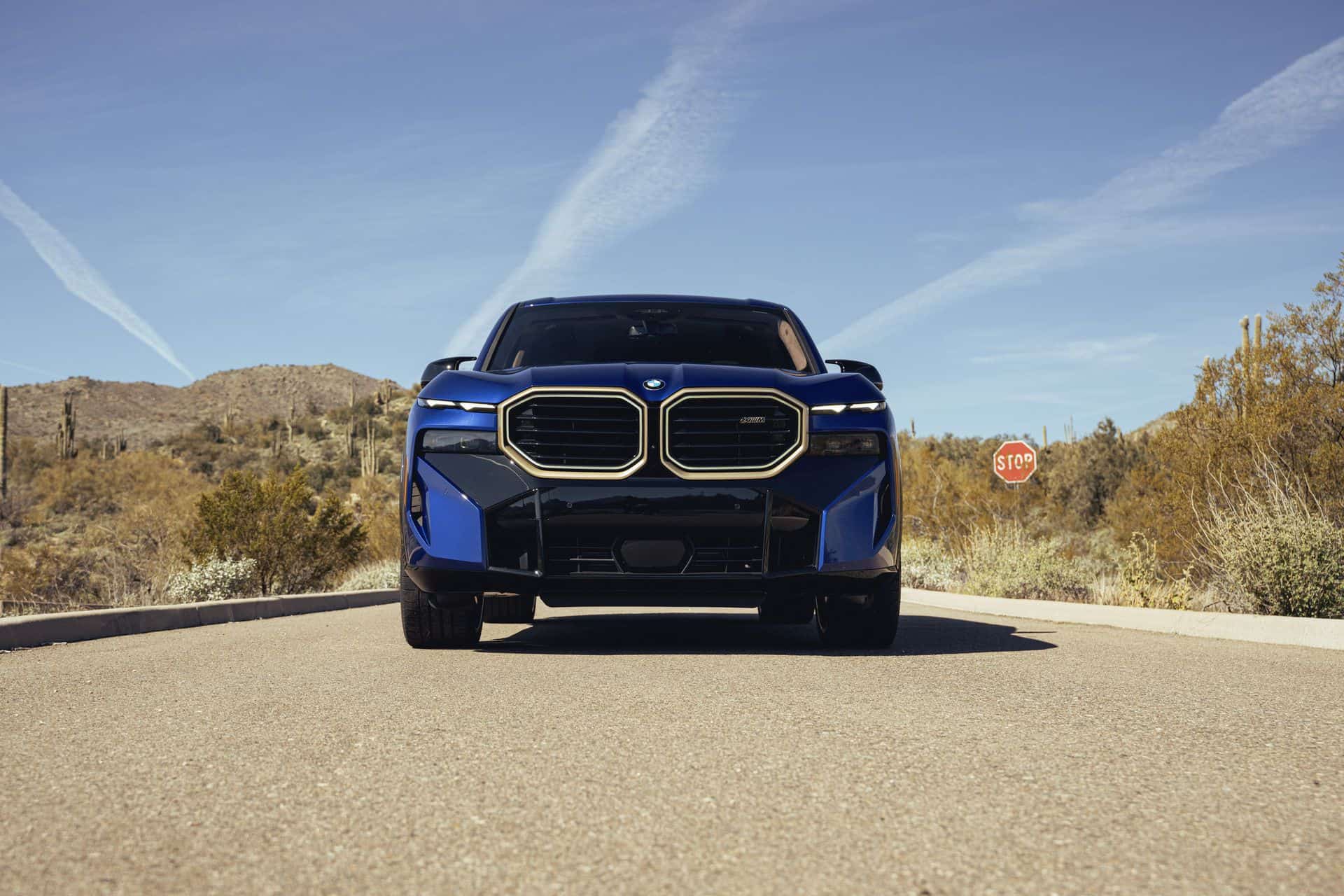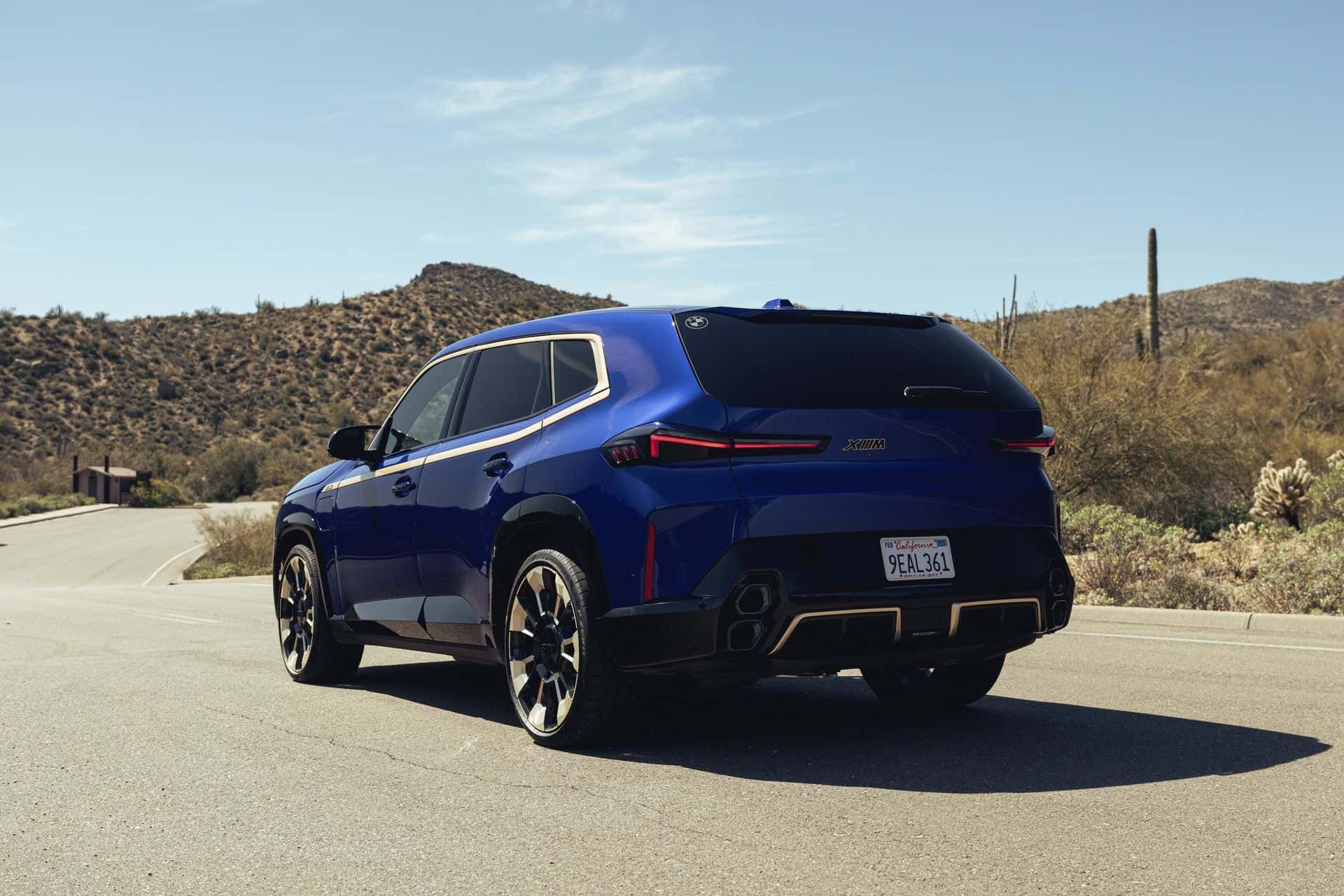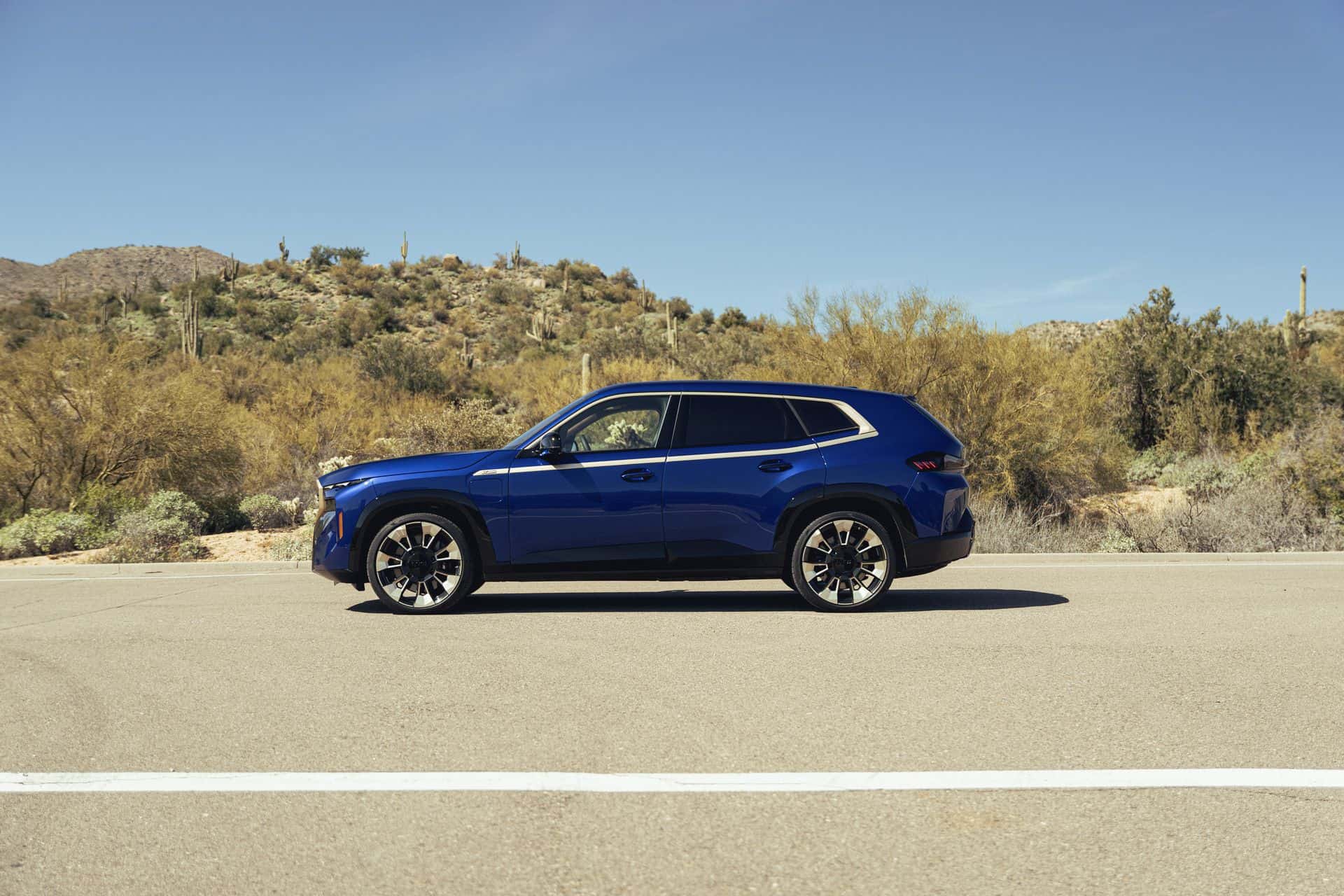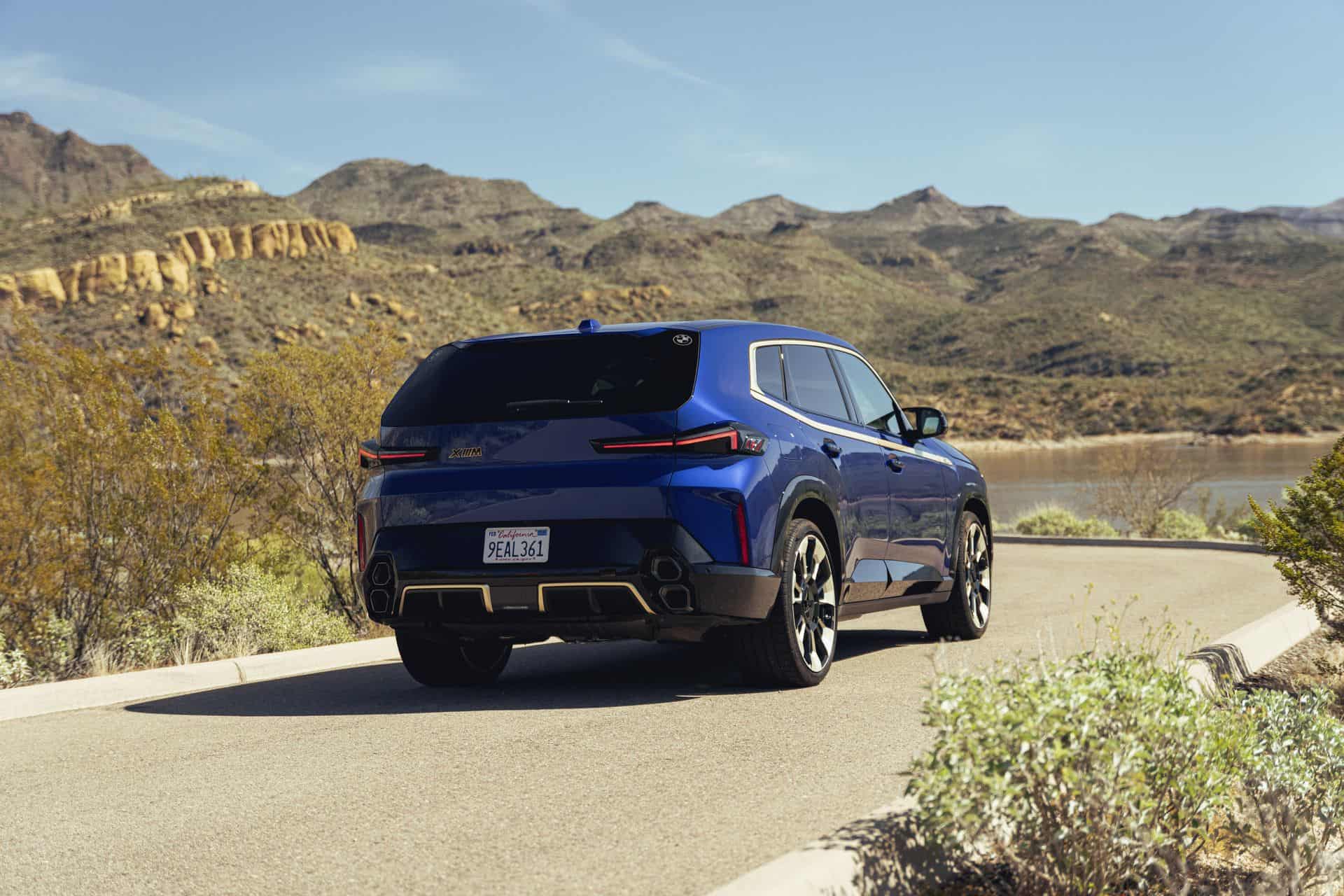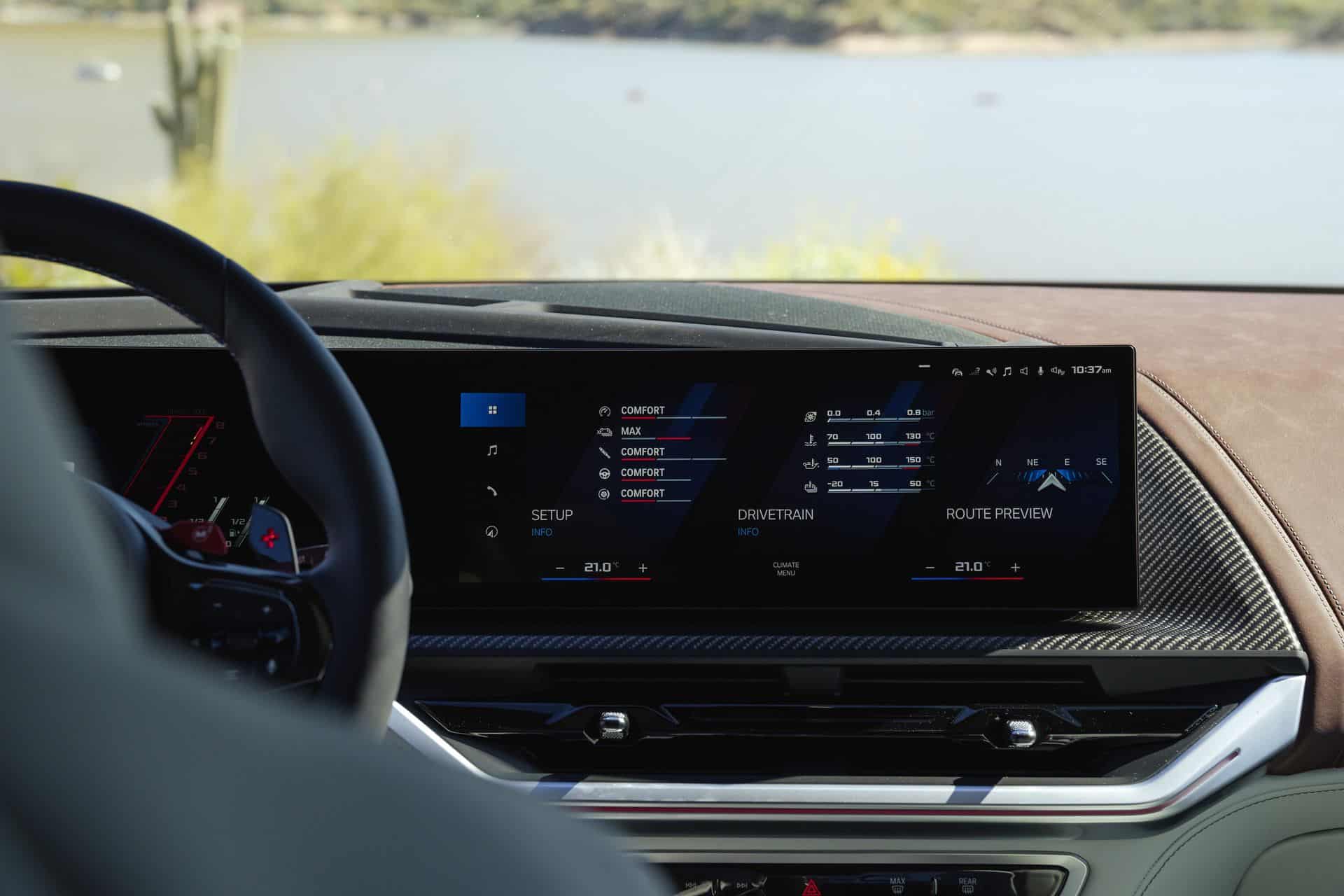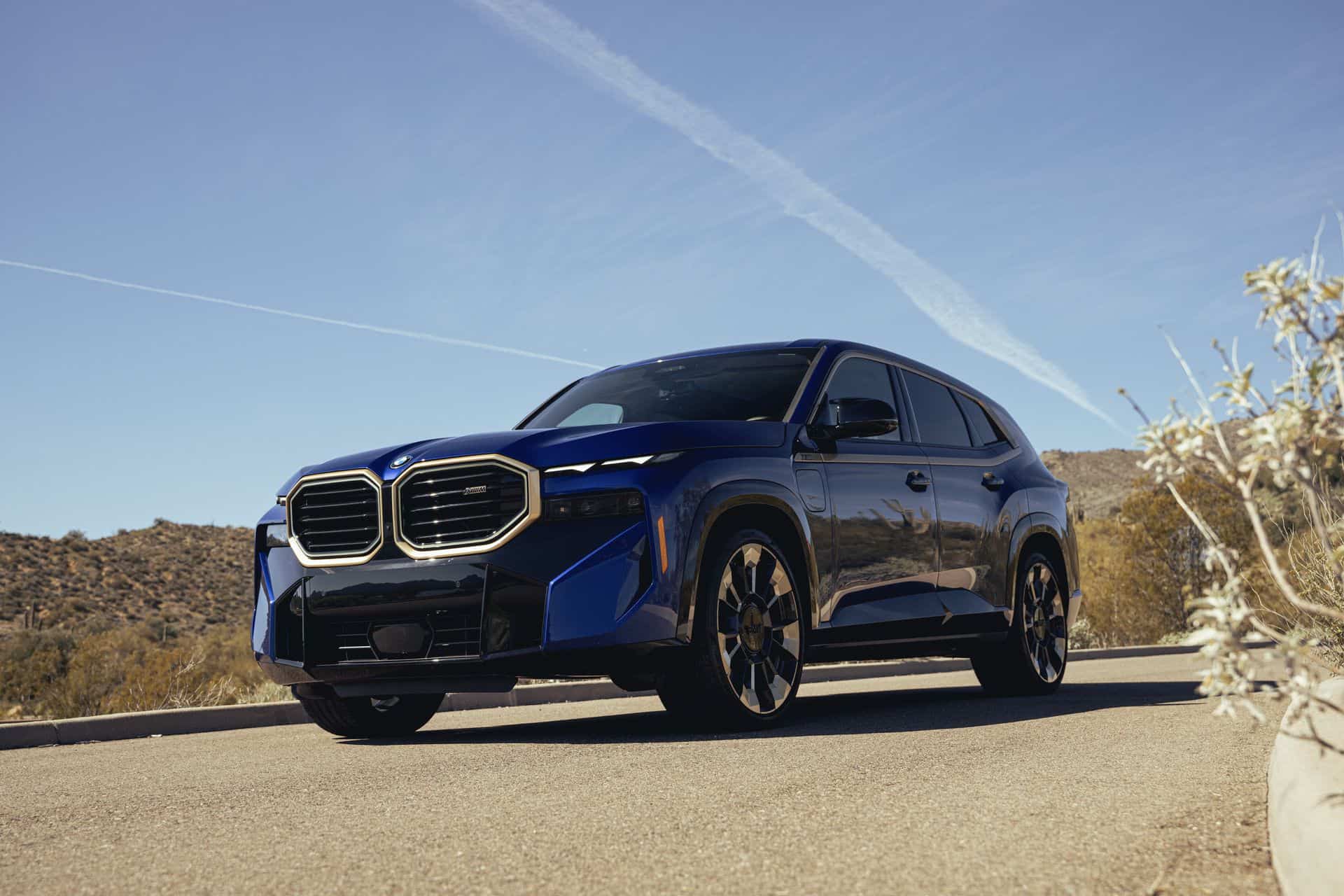The 2023 BMW XM, which is the company’s first plug-in hybrid M product, has sparked controversy and is one of their most talked-about cars to date, even with the reception that the “grille masters” M3 and M4 received from their loyal fan base. In a world where large SUVs are in demand, the BMW XM aims to compete with the segment leader Lamborghini Urus while prioritizing performance over luxury in typical M fashion.
Luxury SUV or M SUV?
But is that what customers in this segment are looking for? For the first time, BMW touted their M product as a luxury item with the well known M performance. Think about this in terms of function follows form, which is unlike any other M vehicle so far. But can the heavy mammoth deliver on both fronts?
I’ve already had a chance to sample an early pre-production BMW XM last year in Austria. But as with most prototypes, my BMW XM had its interior partially covered under black wraps. However, it was clear that the interior design was more akin to the BMW X5M+ model than a high-end luxury crossover. My initial feedback given to the engineering team was polite in many ways, but with a little bit of disappointment in it.
The Concept XM’s interior was impressive
When revealed in 2021, I was impressed by the unique and futuristic interior design of the BMW Concept XM, which featured weaved carbon fiber trim, a flat-bottomed steering wheel, and hybrid captain chairs/bench seating in the back. So I was hoping to see that design live on with the production series XM.
Unfortunately, that wasn’t the case. Instead we received an interior with plenty of parts inherited from the X5M, but in all fairness, with occasional design cues that made it feel a bit more special. And this wouldn’t be an issue if the 2023 BMW XM was priced in the X5M range or below that. But its price tag – $160,000 – puts it into a new territory of cars, one that BMW hasn’t approached in the past. This particular segment also includes the popular Mercedes-AMG G 63 which has a very loyal following.
And this brings me to the initial question: are customers in this segment prioritizing performance over luxury and looks? In my opinion, the simple answer is yes. There is no doubt that the XM is a better on and off-track performer than the Urus and the G-Class – more on that below – but in this case, it’s likely that the design and customer clinics might have not been on point for BMW.
Polarizing design can lead to subjective thoughts
I don’t want to dwell too much on the external appearance as it is a subjective matter. However, I can tell you this: it is polarizing, it is different and from some angles, might even be good looking. Yet, we can’t ignore the fact that in many ways it seems like a confused design with very sharp angles, yet rounded off edges in the back.
Of course, I’m no car designer and there might even be some functional or aesthetic decisions behind the XM’s design. But at the same time, I can’t ignore the fact that I find the X5 M and X6 M to be more attractive.
Most powerful and heaviest BMW car at the same time
With that out of the way, allow me to focus now on what I think makes the 2023 BMW XM a good product for its intended purposes. The M’s DNA somehow managed to find its way into a 6,000 lbs SUV. And without a doubt, that takes a lot of engineering magic to make this M SUV feel a lot smaller and nimble than the spec sheet says.
It all starts with the first M plug-in hybrid drivetrain, one that will land in the upcoming BMW M5 Sedan and M5 Touring as well. At the heart of the XM is the brand-new S68 4.4-liter twin-turbo V8 mated to BMW’s fifth generation synchronous electric motor. Combined, the PHEV powertrain makes 644 hp at 5400 rpm and 590 lb-ft of torque between 1600 and 5000 rpms. This is certainly a good rpm range which will positively influence the drivability aspect of the heavy SUV.
483 horsepower comes from the engine while 194 horsepower from the electric motor. Interestingly, the electric motor by itself makes 206 lb-ft of torque but an additional gear set, in between it and the transmission’s input shaft, bumps that torque figure up to 332 lb-ft. With the help of launch control, an estimated 4.1-second 60-mph time makes the 2023 BMW XM a strong contender in the segment.
4WD Sand mode unique to the XM
Power is sent to all four wheels, naturally, but there’s no two-wheel drive. You do have a special M xDrive mode which can be activated with DSC OFF and that 4WD Sport mode will send more power to the rear wheels.
Additionally, to cater to markets like the Middle East, there is also a 4WD Sand mode which distributes the power differently to the four wheels in situations like driving on the sand.
First Hybrid M
The battery pack also comes from the same fifth-gen eDrive technology with a usable capacity of 19.2 kWh. Of course, it isn’t too big but it provides an electric range of 88 kilometers (57 miles) on WLTP. Of course, the EPA range is a bit lower: estimated at 30 miles. A level 2 home charger will charge the battery in about 3.5 hours. Top speed in EV mode is 140 km/h (87 mph). The overall top speed is 155 mph or 168 mph with the optional M Driver’s Package.
Before we move onto the next topic, let’s talk about the charging of the battery pack. In the United States, the only way to fully recharge the battery is by using a charging station. The 2023 BMW XM comes with a state of charge hold function which can be activated to maintain the current battery levels. Now the BMW XM can recoup energy from the brakes or coasting with two regeneration settings: Normal and Max. In Europe, things are a bit more relaxed in terms of regulations so you can actually increase the state of charge by using the eControl function.
The M Lounge has the potential to get better
During my video review I also had a chance to sit in the back to experience the design of the XM. BMW calls the back seats the M Lounge and that’s a fair description since you do feel like you’re sitting in a very comfortable lounging chair. The bench has a good tilt which allows even passengers on the taller side to comfortably sit upright. The centerpiece of the interior is the headliner with a 3D prism design covered in Alcantara fabric and illuminated by 100 LED lights. A cool and unique feature, but remains to be seen whether customers would have made better use of a full panoramic sunroof like in the 7 Series.
In terms of space, the BMW XM provides ample lateral and knee room due to its intelligent door design which allows passengers to lean against them. When comparing the rear space of the XM to the X5 or X7, I would say it is more similar to the X7 than the X5.
The engineering side is impressive
The 2023 BMW XM has received an updated double-wishbone front suspension system featuring forged upper control arms, aluminum wheel carriers, and lightweight end links. Although BMW has not provided specific details, they claim that the car’s weight distribution is almost evenly split between the front and rear. The car is also equipped with steel springs and new adaptive dampers, as well as 48-volt active anti-roll bars that stiffen while turning and loosen while driving straight, which improves agility and reduces rigidity respectively.
Steel suspension over air adjustable
The choice to forgo the air suspension, apparently, has to do with the M’s philosophy for their cars – sportiness over comfort. In some regards, I agree with their decision because the steel suspension does wonders for the heavy XM at top speeds and during heavy cornering. But in other driving situations, like cruising in city centers or over the imperfect pavements surrounding Phoenix, the air suspension would have made a lot more sense. According to the BMW XM product manager, Sarah Lessmann, some decisions without compromises had to be made to stay true to the M values.
In addition, the 2023 BMW XM features Integral Active Steering, which involves rear-wheel steering that assists in improving agility and decreasing the turning circle when the rear wheels are steered in the opposite direction of the front wheels at low speeds. At higher speeds, the rear wheels turn slightly in the same direction as the front wheels, which improves high-speed stability.
Furthermore, the car has a new rear differential that can handle the power of the hybrid powertrain, along with BMW’s near-actuator wheel-slip limitation system that acts as an additional traction control system, monitoring wheel slip faster than traditional DSC systems. The XM also features model-specific half-shafts for improved torque management and a brake-by-wire system.
The 48-volt anti-roll system does wonders
The XM’s 48-volt anti-roll mechanism can distribute a maximum torque of 1,100 Nm to each wheel. In addition, the rear axle steering can adjust the driving experience from a soft to a firm feel, providing both comfort and high-performance handling during cornering. The rear axle steering is limited to a maximum turn of 2.5 degrees and only activates at speeds below 25 miles per hour or above 100 miles per hour. These two primary systems set the driving dynamics apart from those of the X5 M.
Feels lighter than it looks
But how does this all engineering lingo translates into real life driving? My route took me first on highways around Scottsdale before heading to the iconic Bartlett Lake and then onto some amazing twisty roads. This was a good mix to test the XM’s driving dynamics in different scenarios.
Unfortunately, the highways that I traveled on were not very smooth, so I primarily utilized the Comfort mode during the journey. Despite this, the XM model was still somewhat stiff and rough when riding these uneven surfaces. Typically, I would appreciate this feeling in an M product, but the XM was marketed as a luxurious SUV…
However, great roads laid ahead and this is where the 2023 BMW XM stood out. The combination of the V8 with the electric motor is brilliant, providing plenty of power for the 6,000 lbs SUV. The instant delivery of the electric motor is addictive, but the V8 push is equally rewarding. Even the Hybrid mode works seamlessly. The transition from all-electric to combustion power is extremely smooth, becoming a second thought. The exhaust sound is unique compared to the X5 M’s. I wouldn’t say better or worse, just different. Yet, it provides the same great blurbs and deep sounds, especially in the Sport modes.
Despite being a large and heavy car, the BMW XM feels a lot lighter than you’d think. Sure, there is some body roll considering its high-riding position. But far less than anyone would anticipate. The chassis is extremely composed when dialed up to its highest setting, while the suspension works wonders in and out of tight bends.
Harsh on imperfect surfaces, great while cornering
To play devil’s advocate, while an air suspension could have enhanced the comfort of the ride in most driving scenarios, it would have likely decreased the excitement and satisfaction in instances of intense cornering. The steering is not excessively responsive, instead it is gradual and fluid, yet with good feedback from the road through the 22 inch high-performance tires. Naturally, I wasn’t expecting sharper inputs like in the BMW X5 M, so in the end, it was surprisingly far more engaging than I remembered.
Physical buttons are still being missed
On the annoying side of things, I’m still going to rank the iDrive 8 and curved display at the top of my list. While the large screen integrates a lot better within the XM’s layout – compared let’s say to the smaller M2 – it’s still annoying to use. Voice controls are a hit or miss still, even though I’m told that the upcoming iDrive 8.5 and 9 will significantly improve that experience. The system can’t still accurately interpret all commands and its natural language processing is still a far cry from Amazon’s Alexa or Apple’s Siri.
The lack of physical buttons is equally annoying because it forces me to constantly use the touchscreen for certain functions. But at least we’re still getting the iDrive knob which makes life easier sometimes. It just often feels that the UI and UX engineers never sat in the same room, or one of them wore both hats.
Packed with Driver Assistance features
On the positive side of tech, BMW promotes the XM by highlighting its extensive range of advanced driver systems that come as standard equipment on M vehicles. These systems consists of several features such as adaptive cruise control, forward collision warning, lane departure warning with steering correction, evasion assist, and driver attention monitoring, among others. The more advanced systems come with the Driving Assistant Professional package at an extra cost.
Beauty is in the eye of the beholder
In conclusion to the driving impressions, the 2023 BMW XM has its own character compared to the other M SUVs and an apples-to-apples comparison with the X5 M wouldn’t be fair. In terms of technology and driving dynamics, the BMW XM still builds upon the engineering pillars that turned ///M into a renowned brand. It can magically hide its weight – considering it’s the heaviest BMW today – and it can put a smile on my face. In certain situations.
Although I have covered some aspects of the BMW XM in this review, there is much more to this luxury M SVU that I encourage you to explore for yourself by taking a test drive or experiencing it from the back seat. It’s worth noting that the customer demographic for this vehicle is more diverse than ever before. In a time of social media craze when trends are constantly shifting, the typical automotive customer is also changing rapidly. And in the end, what is useless to one person might be valuable to another.
However, I must say that the 2023 BMW XM faced a significant challenge by being included in the new BMW M2 launch program. It can be difficult to remain unbiased or not be swayed by a superior product, particularly when you have the opportunity to drive them back-to-back.
2023 BMW XM
Good
- Most powerful BMW
- Electric driving
- Driving dynamics
Bad
- Lack of a true luxury interior
- Lack of physical buttons
- Expensive


